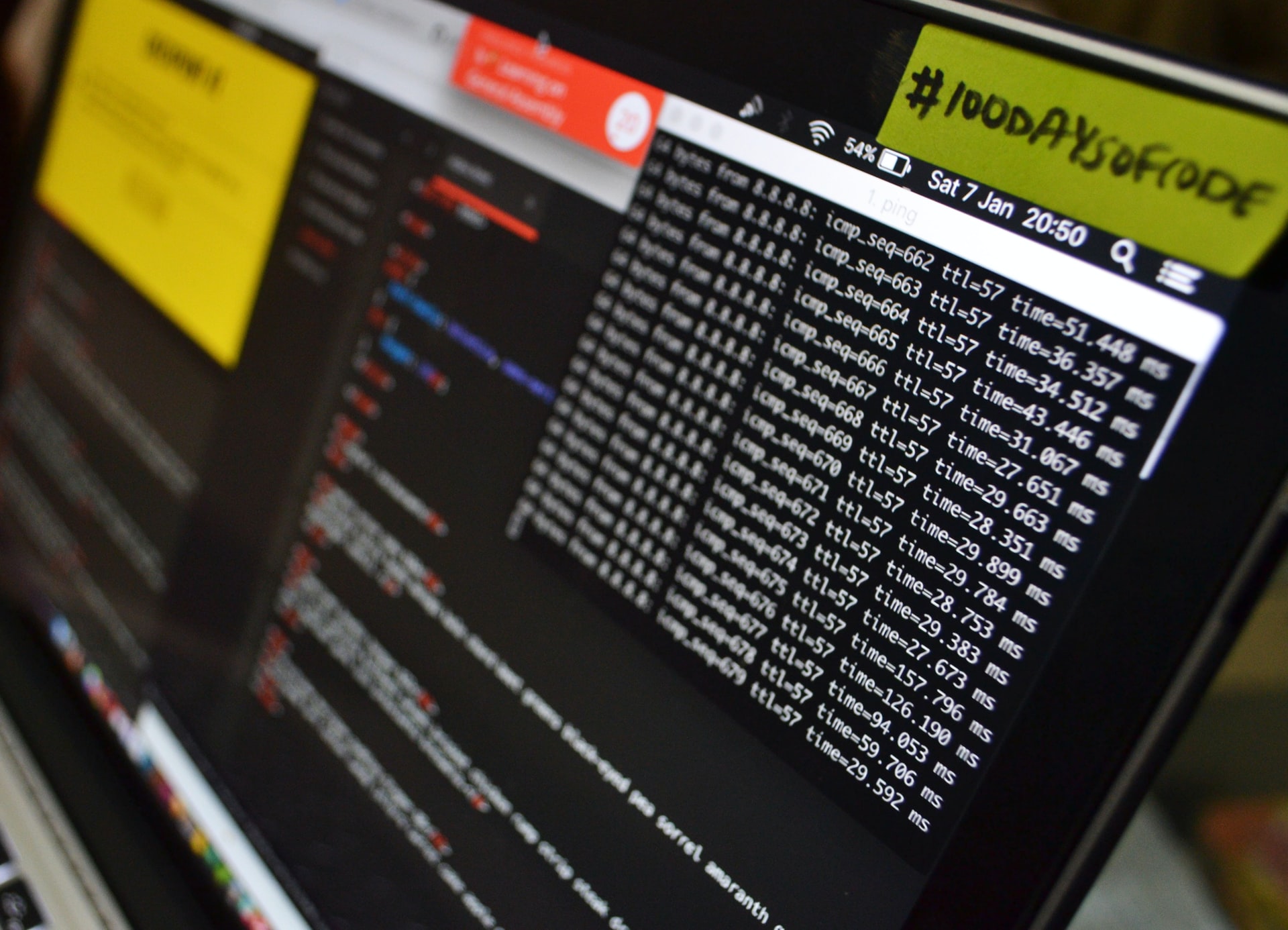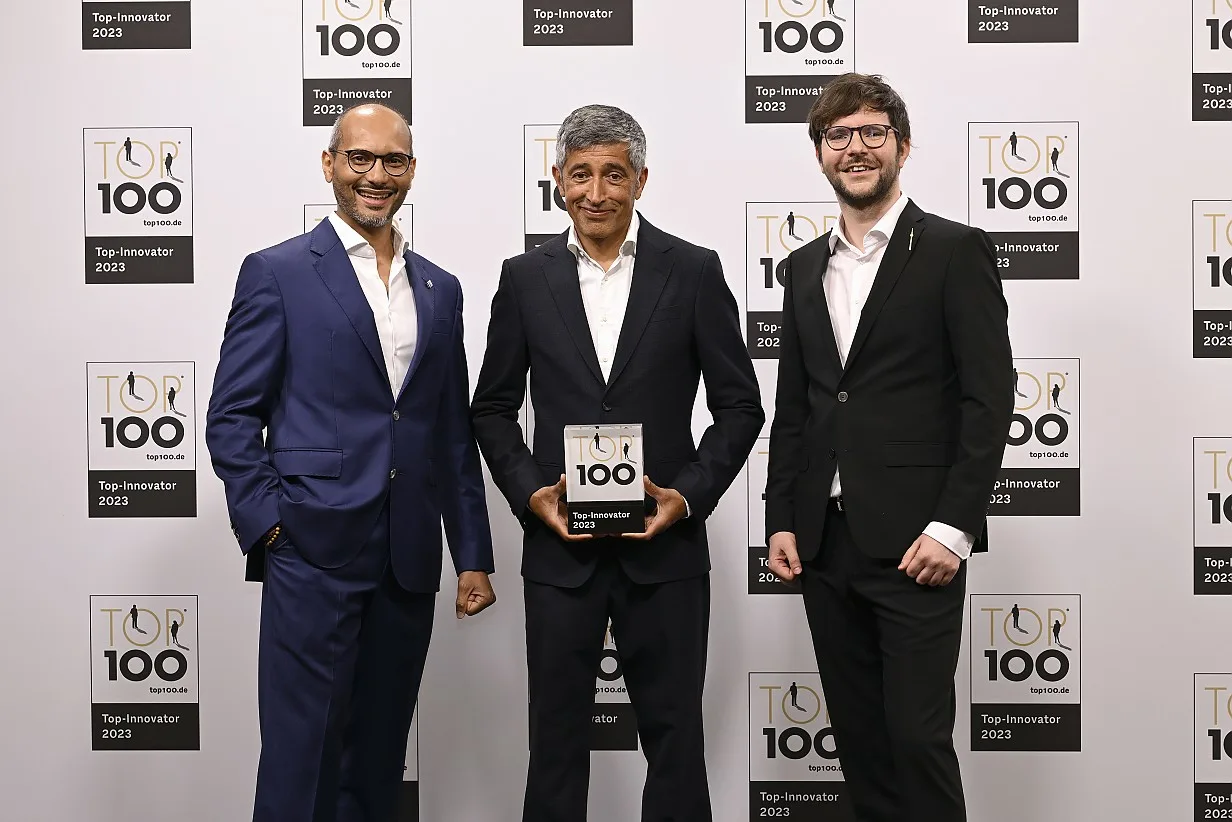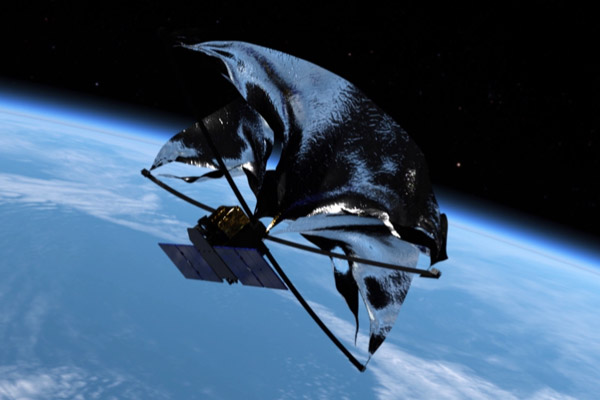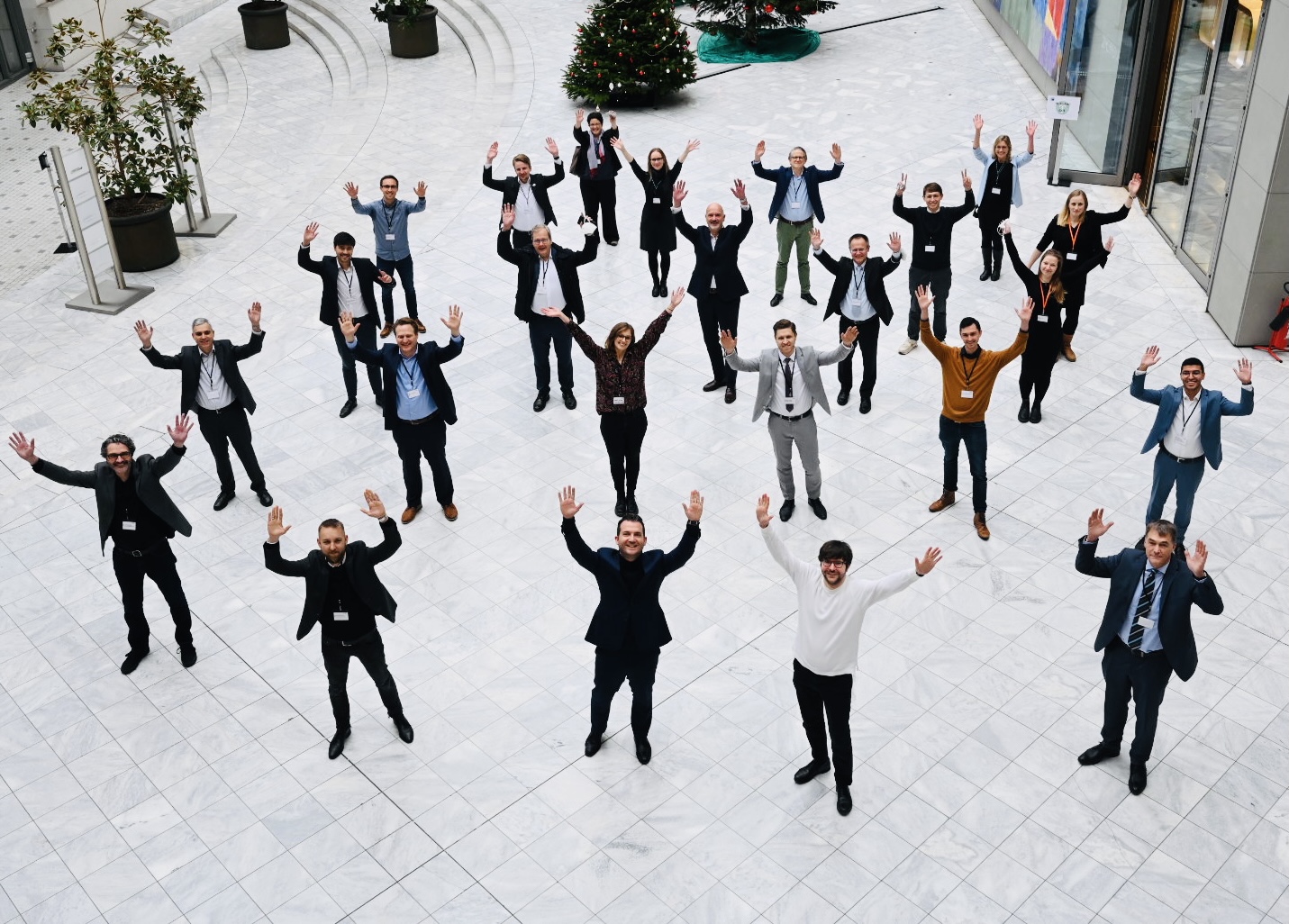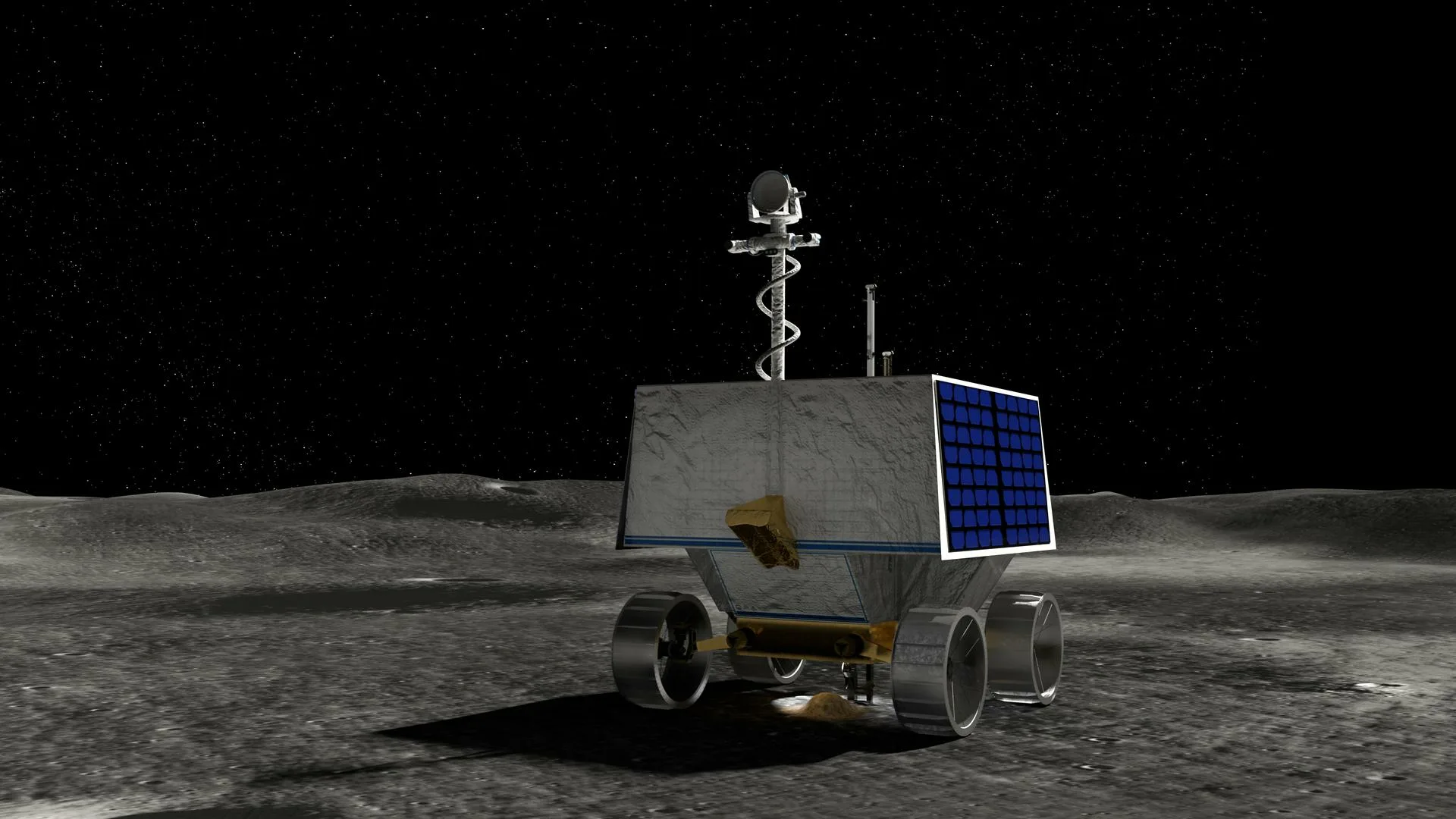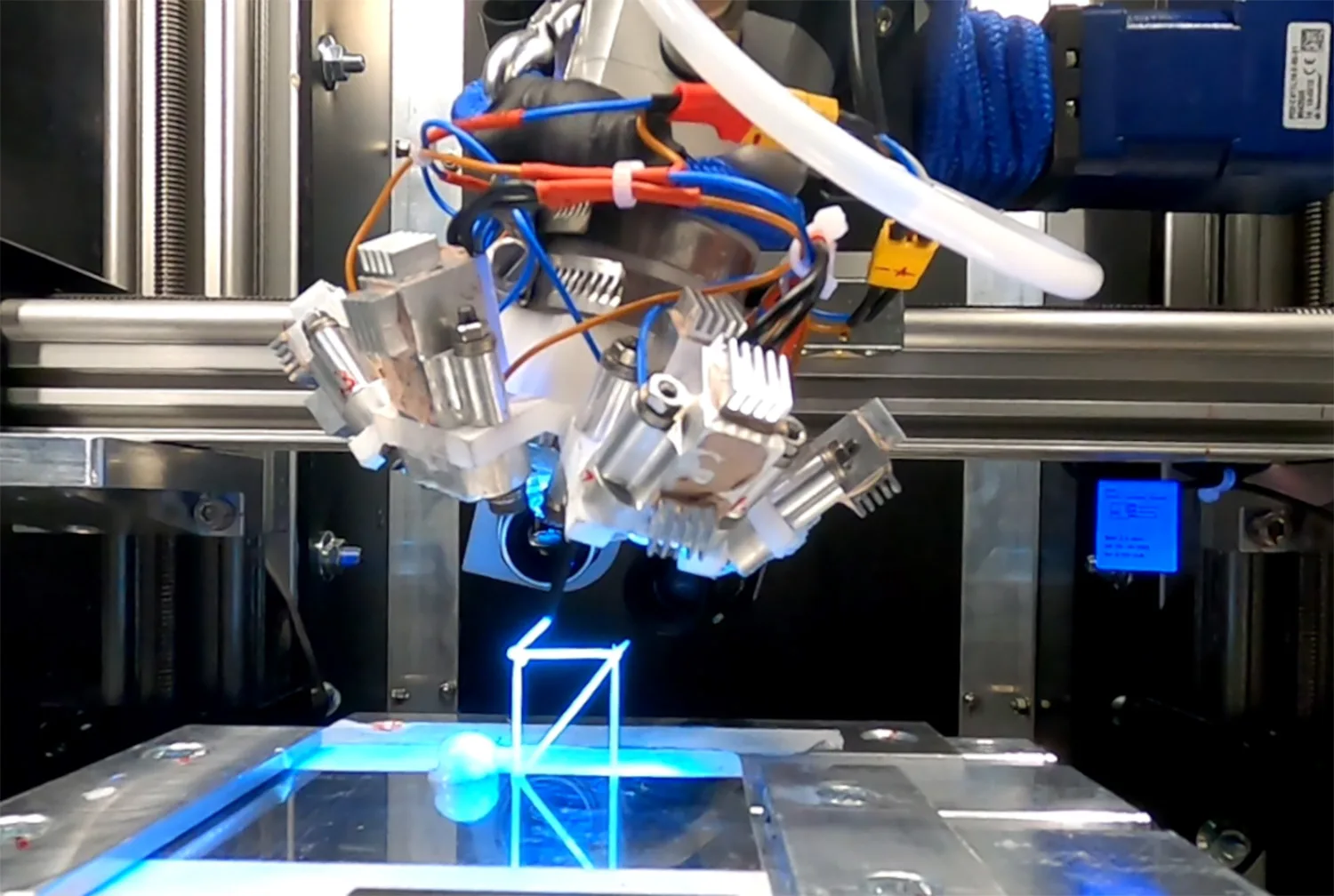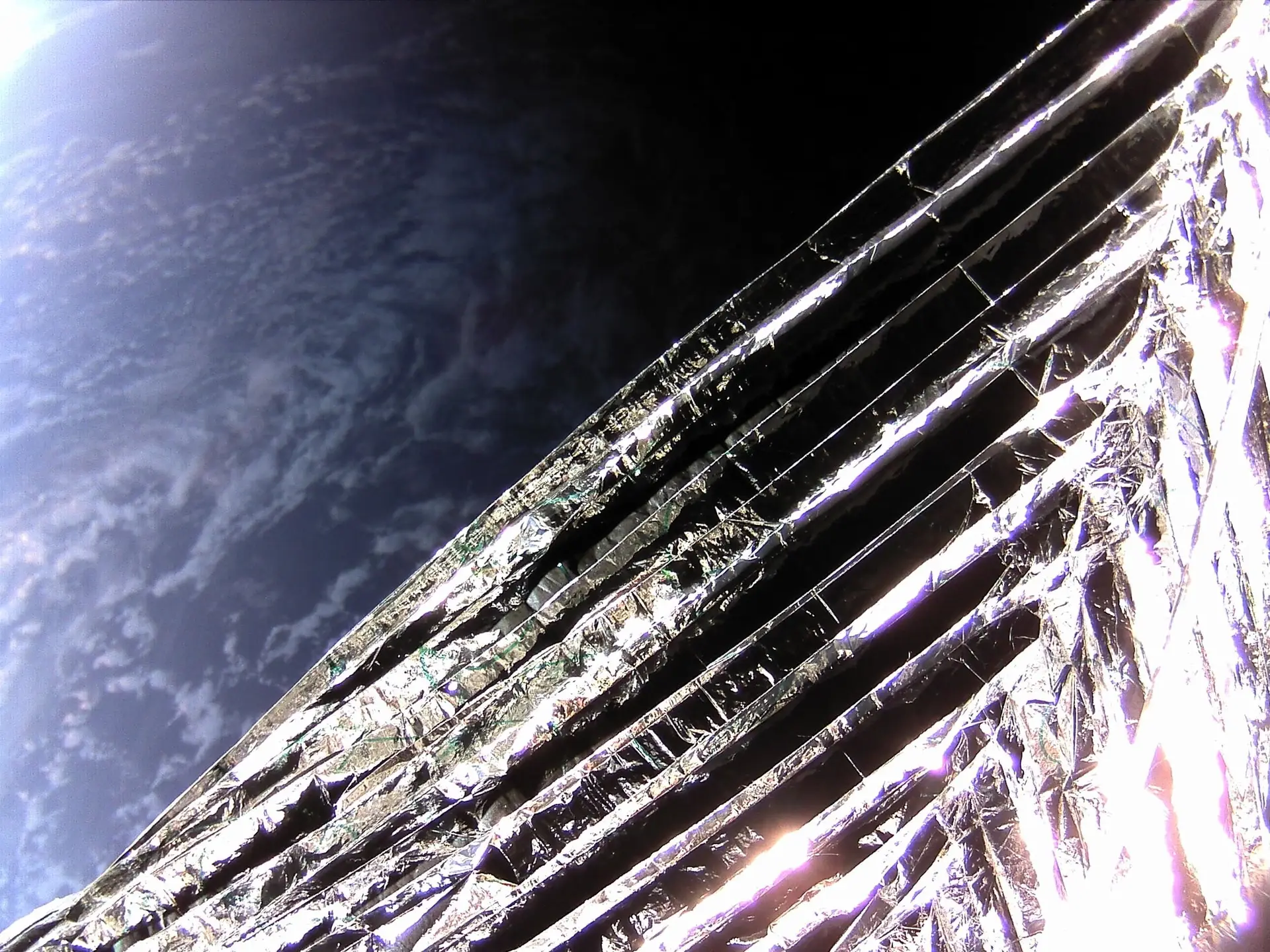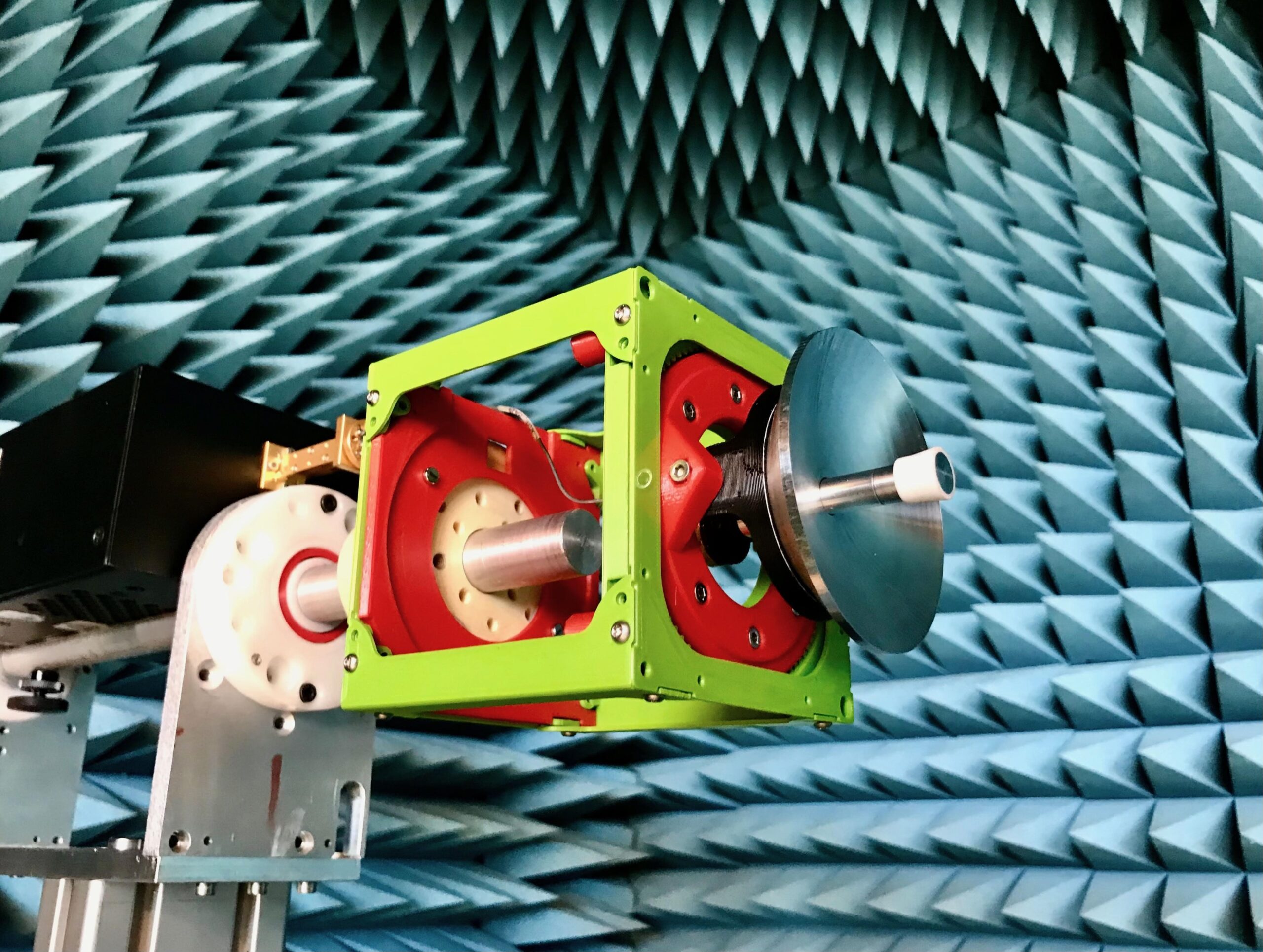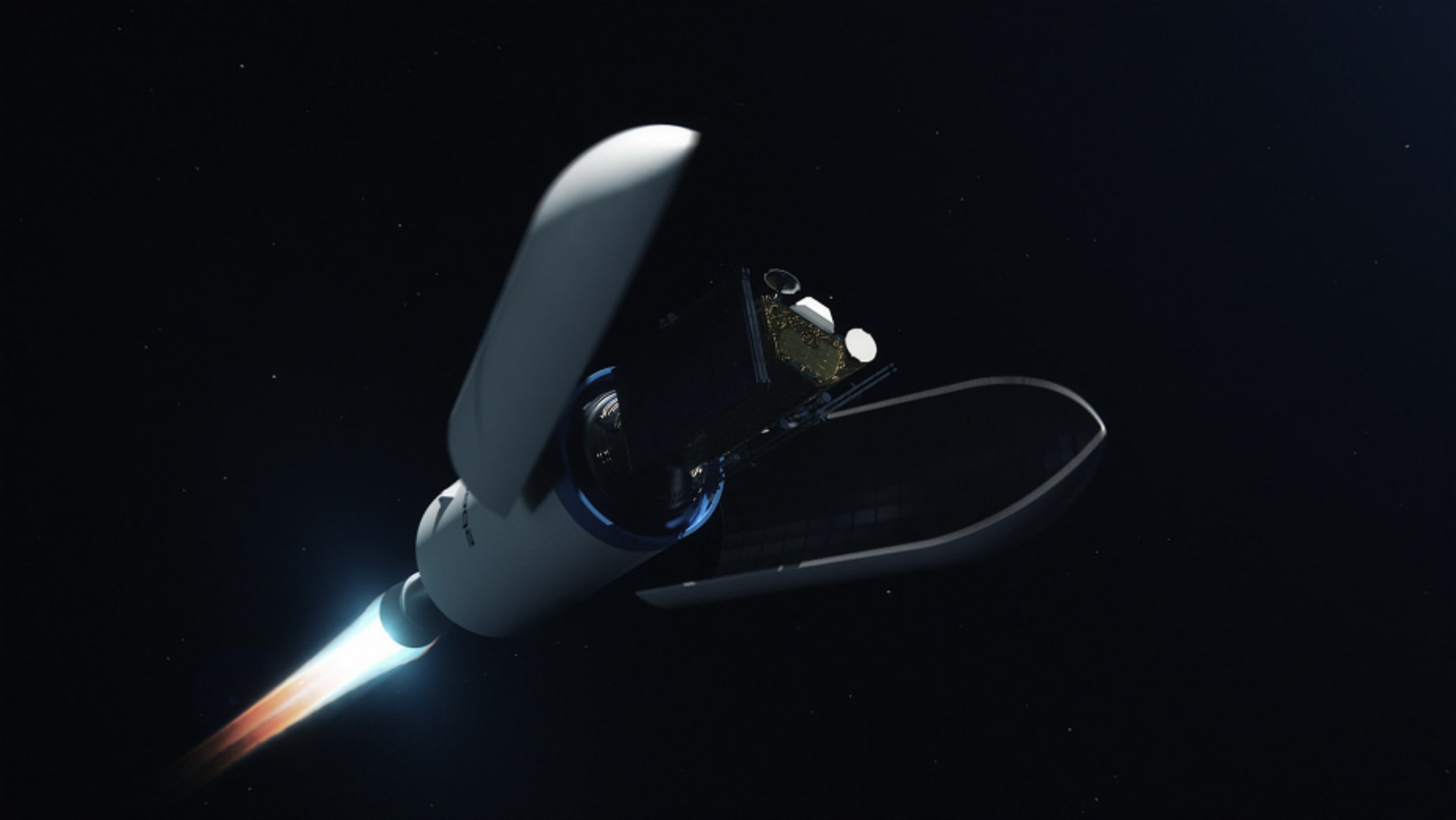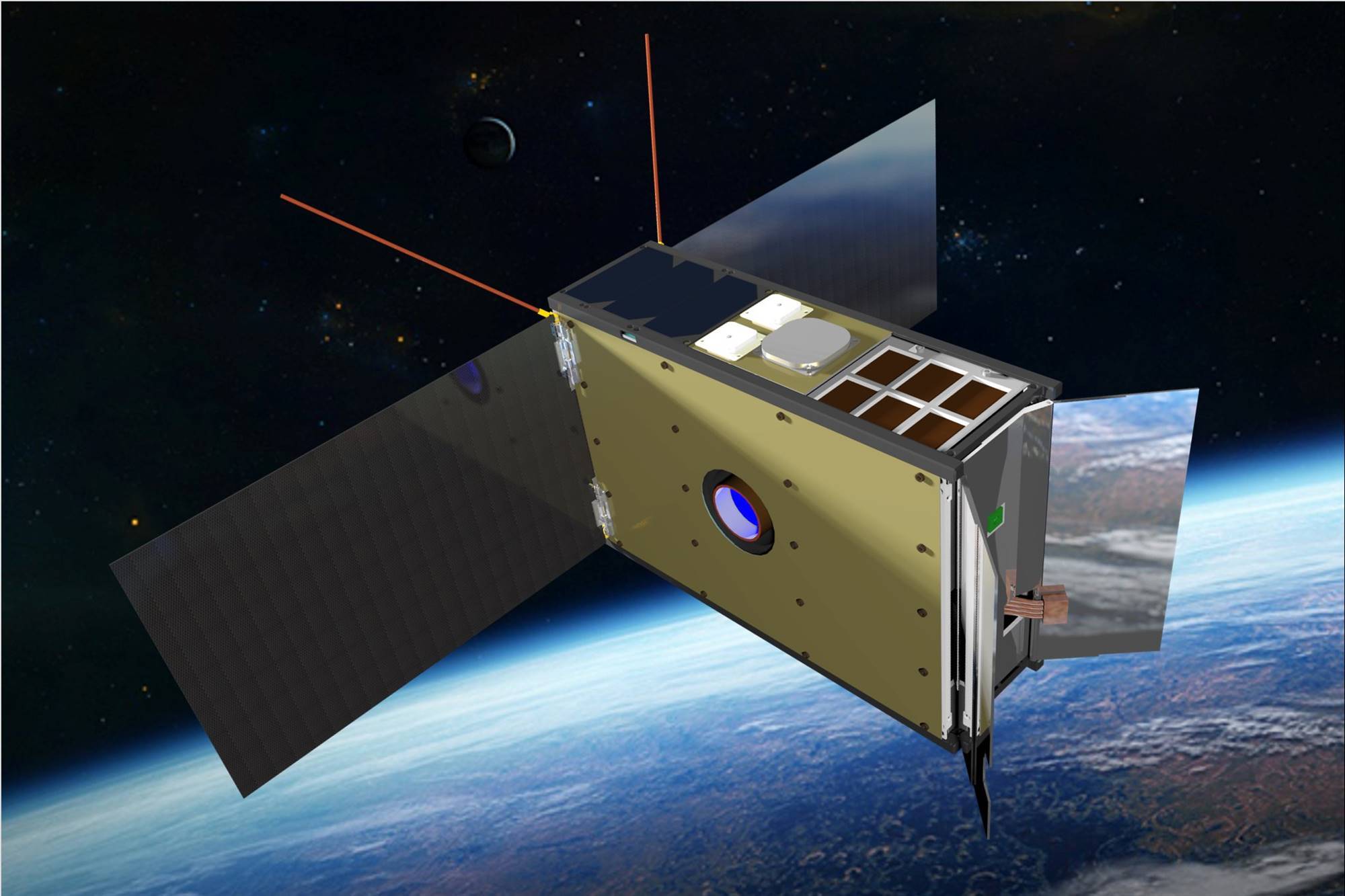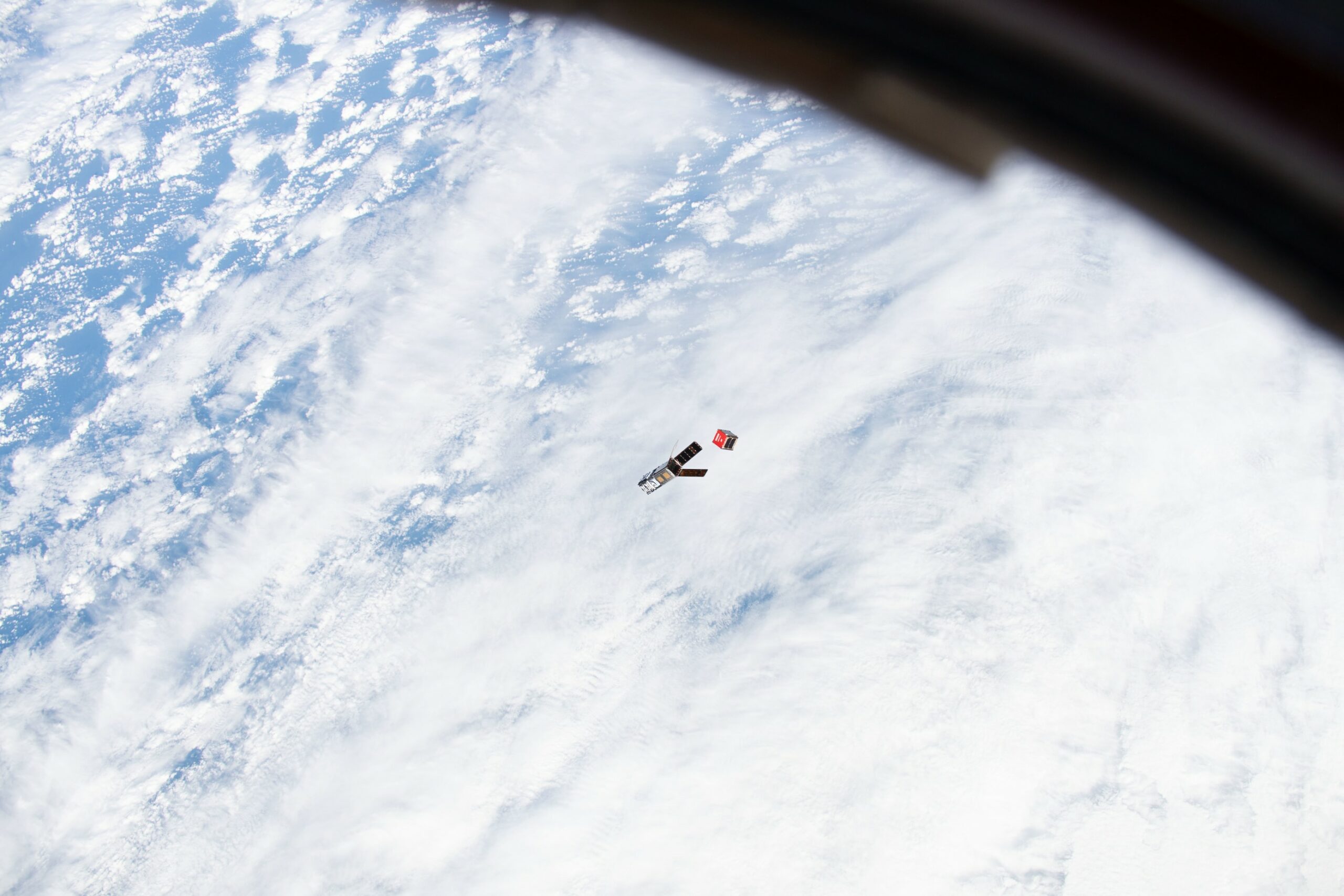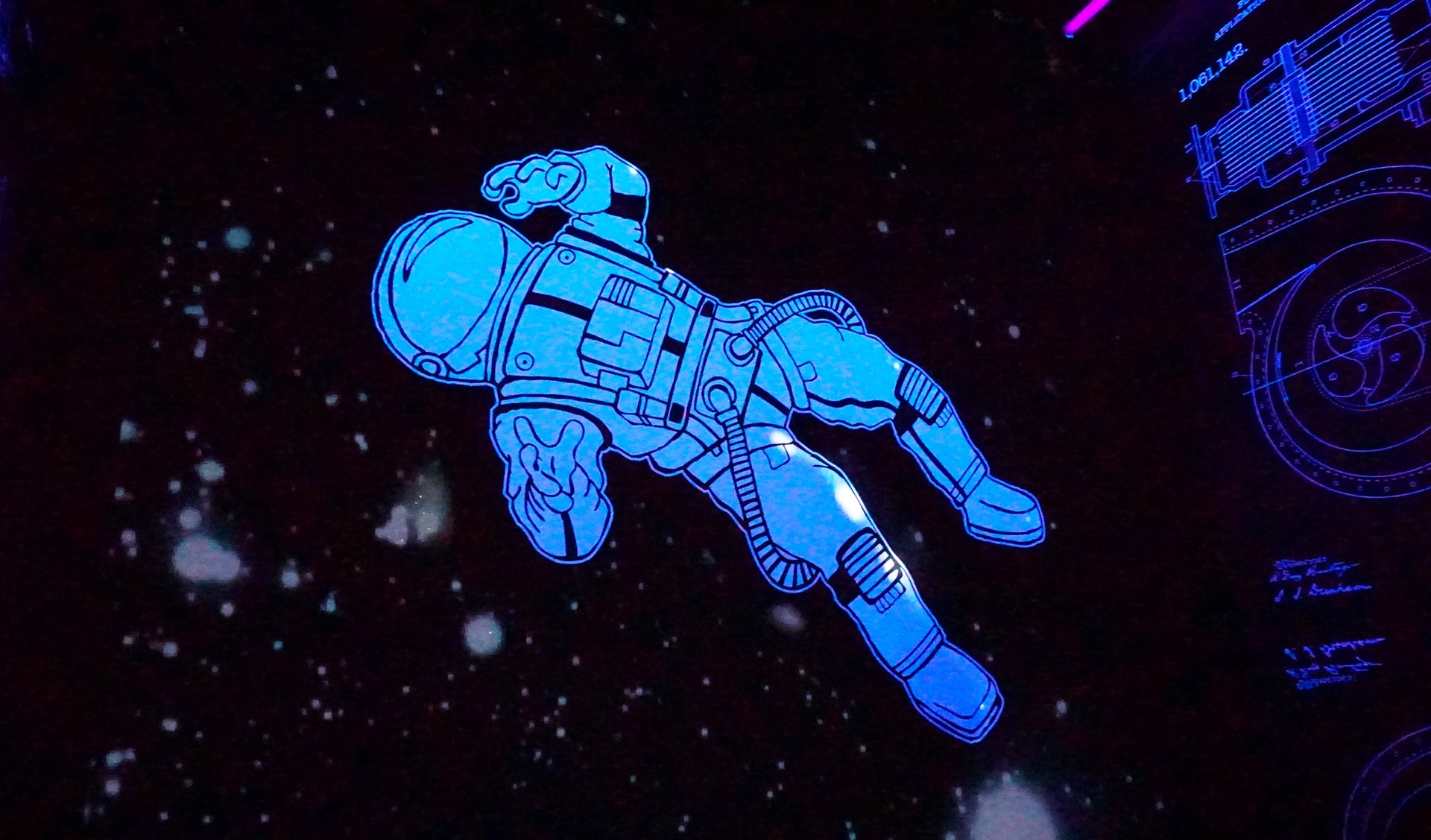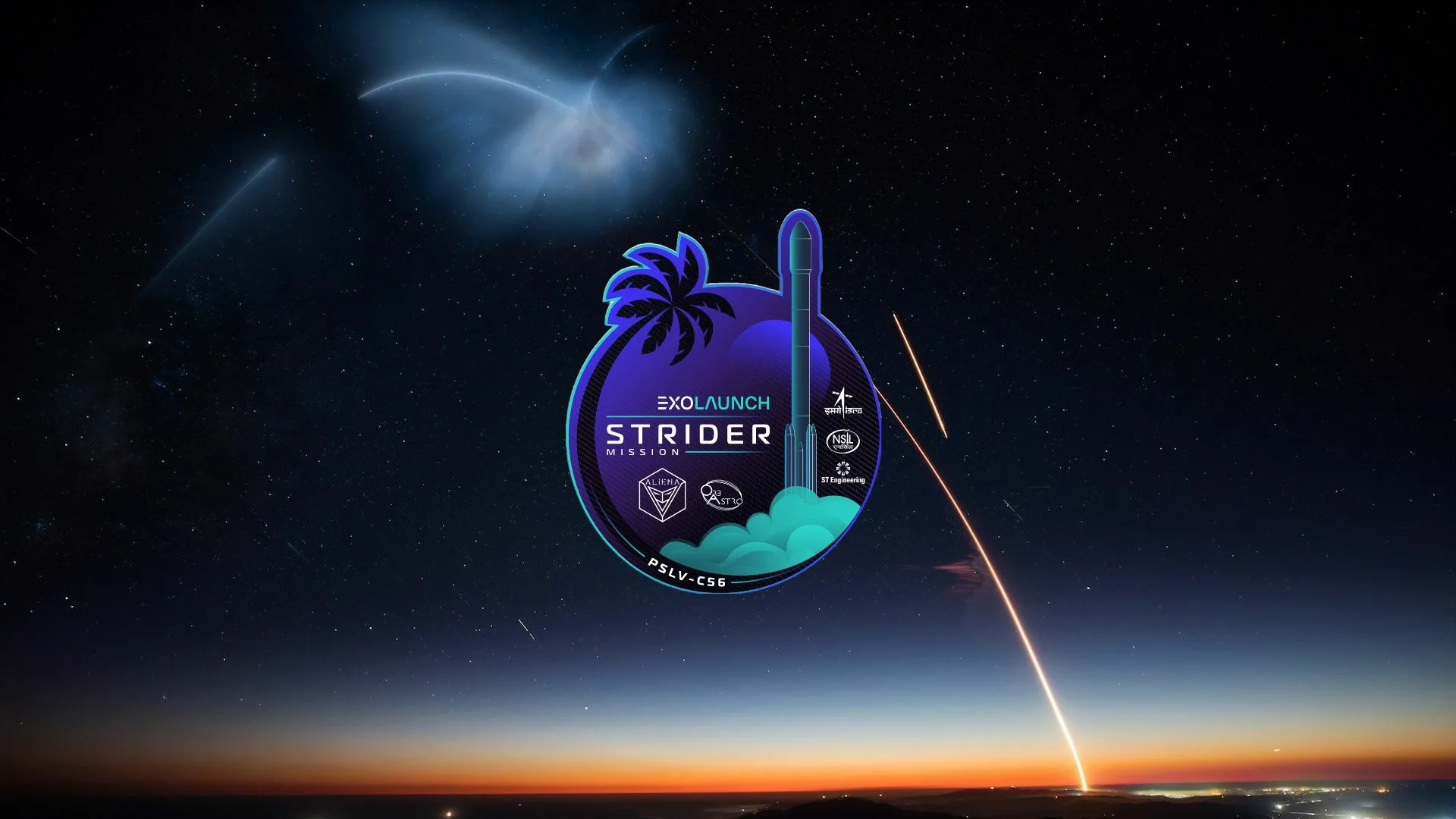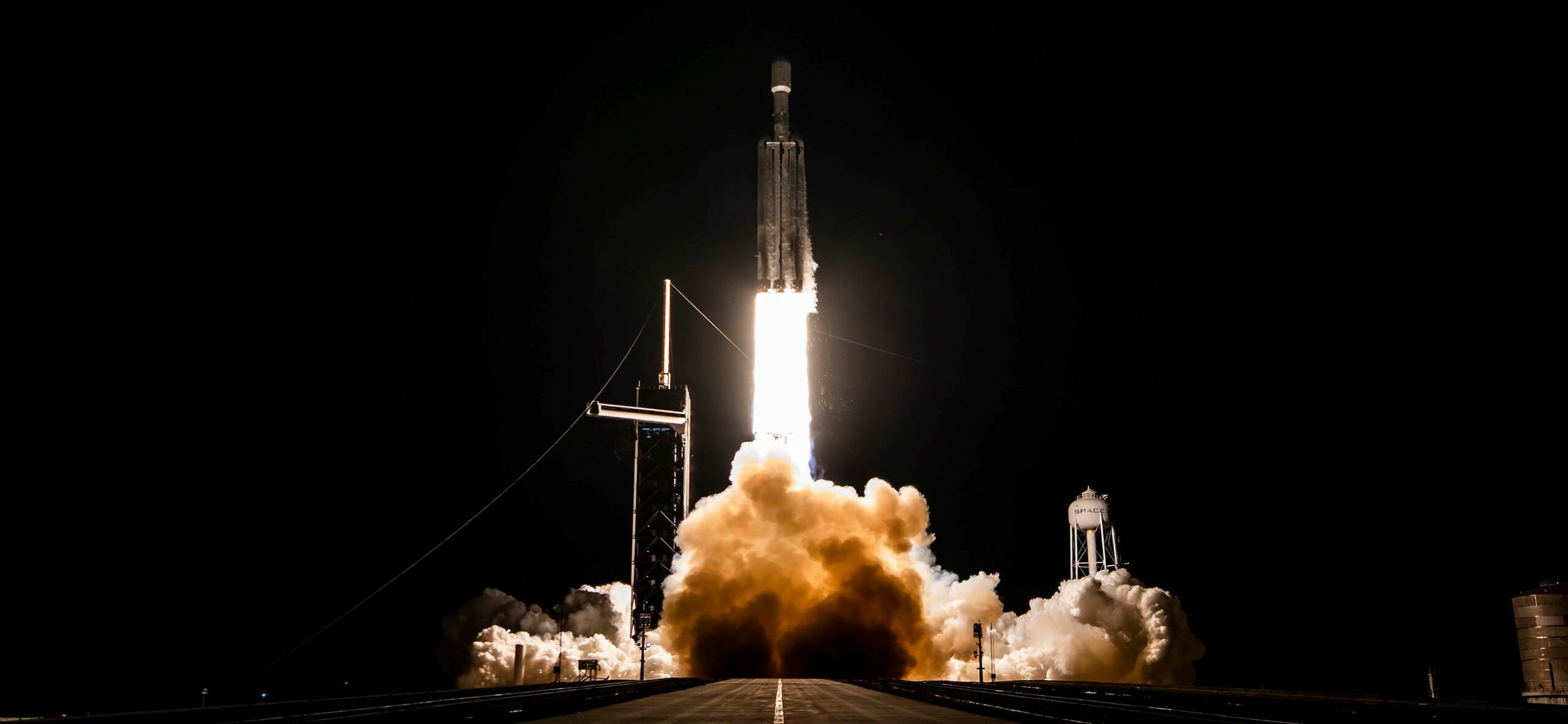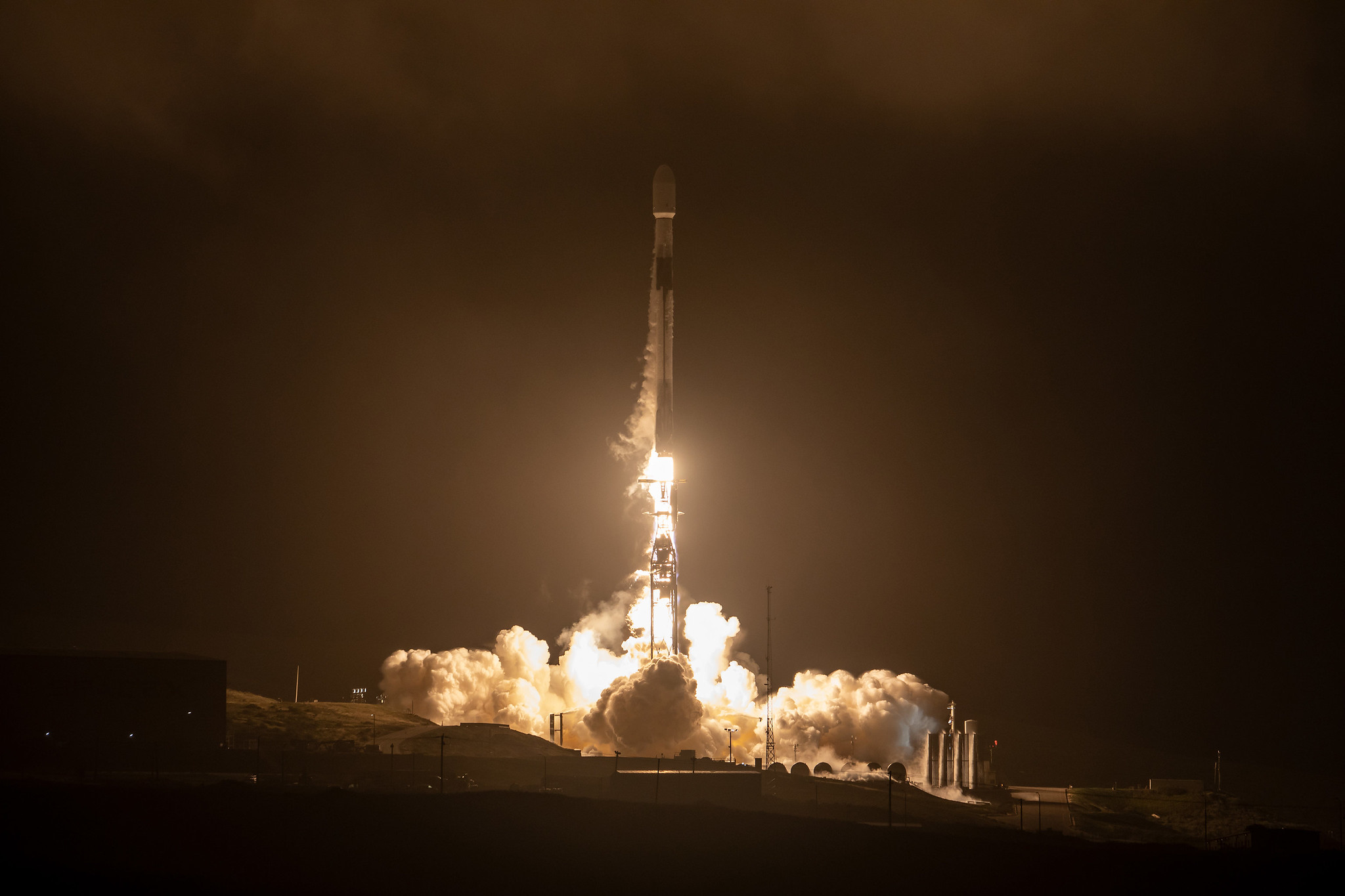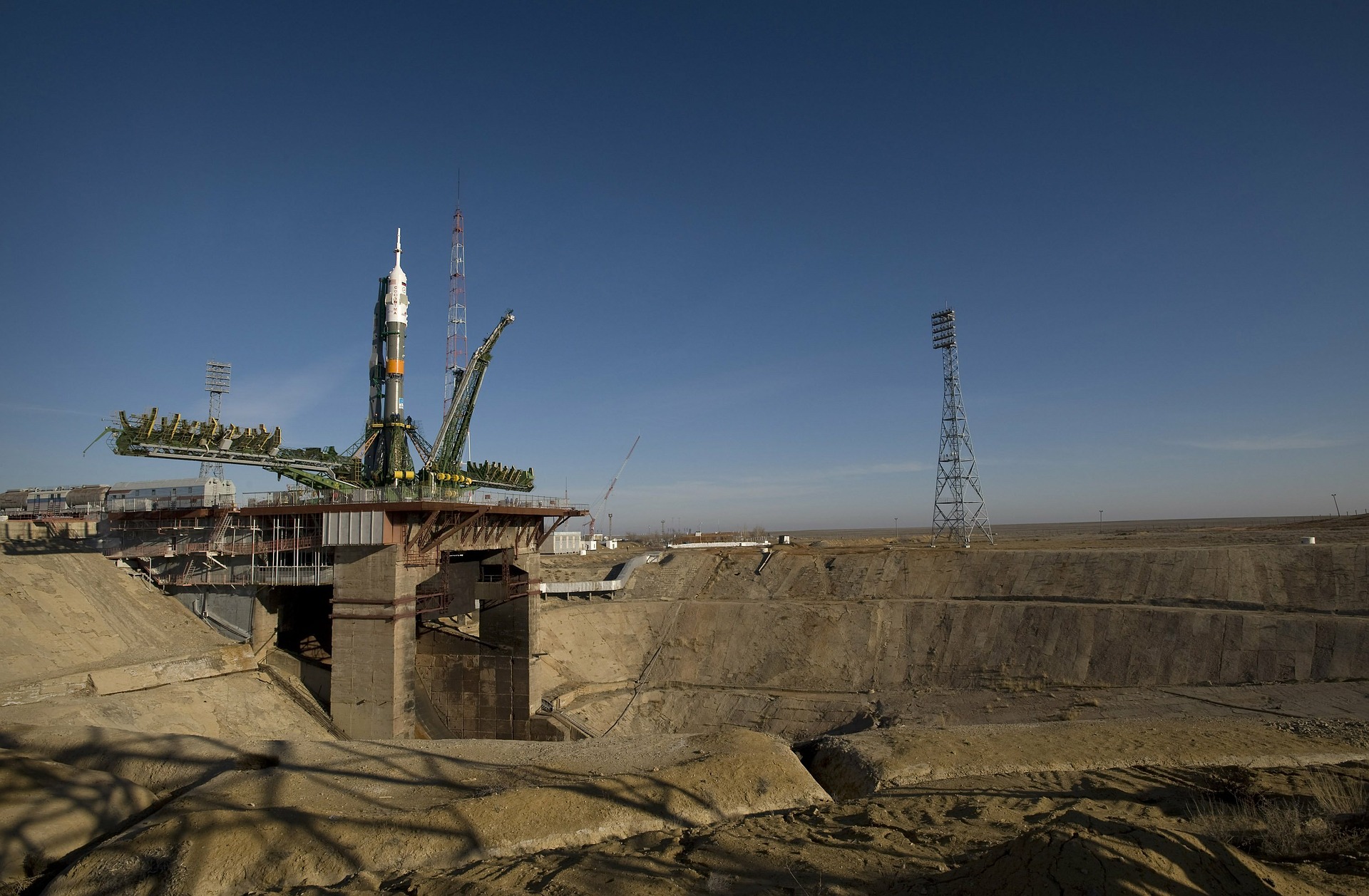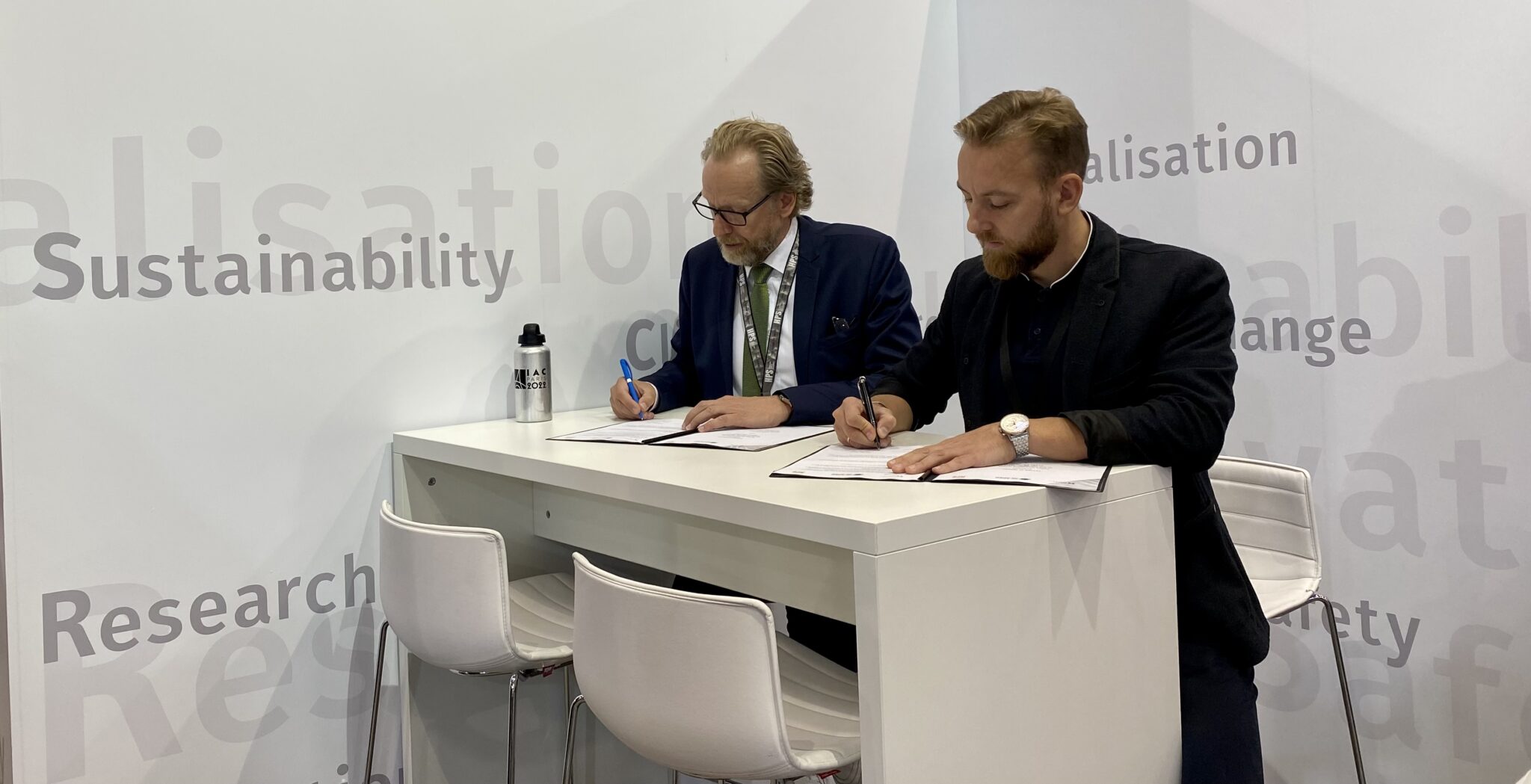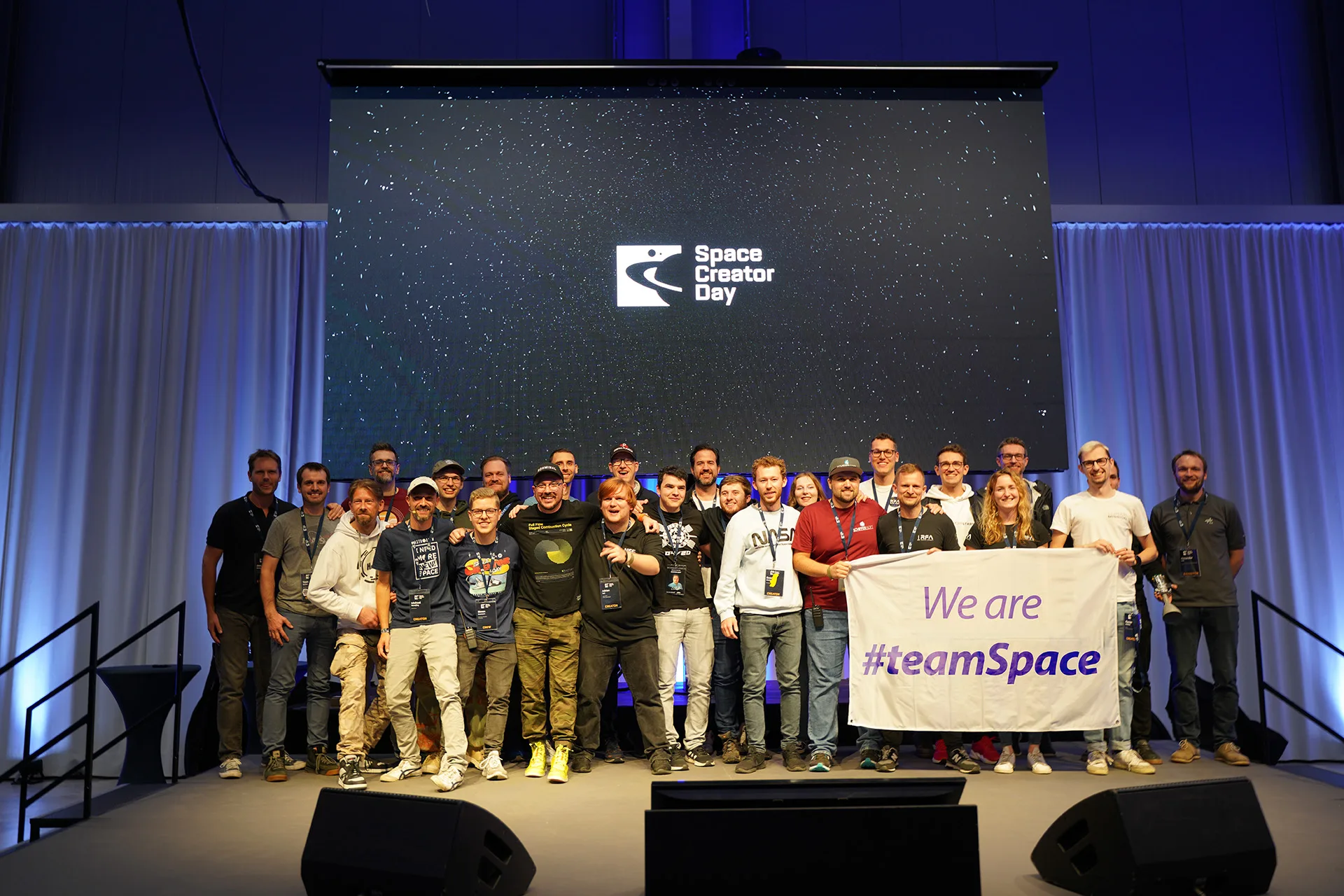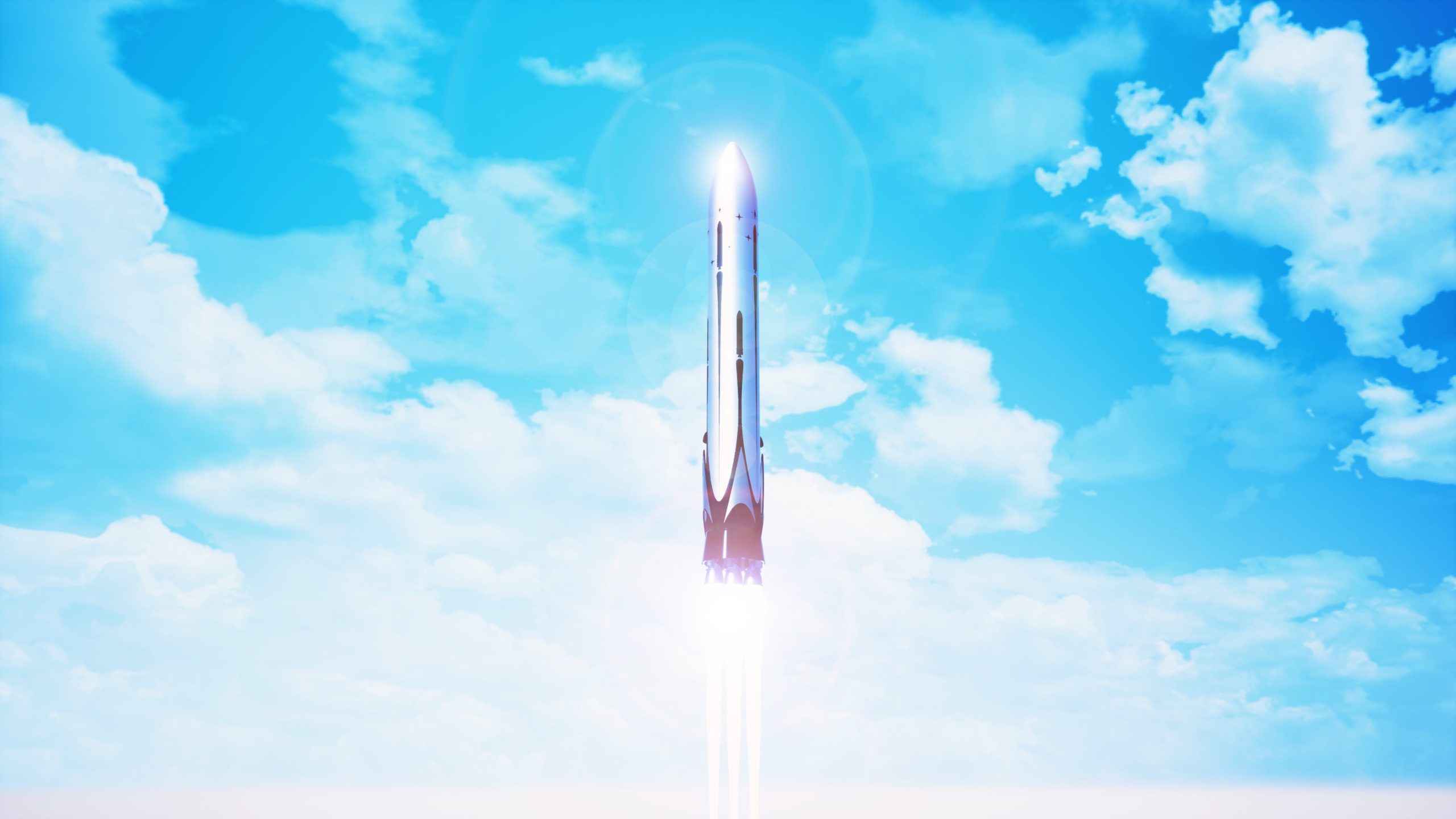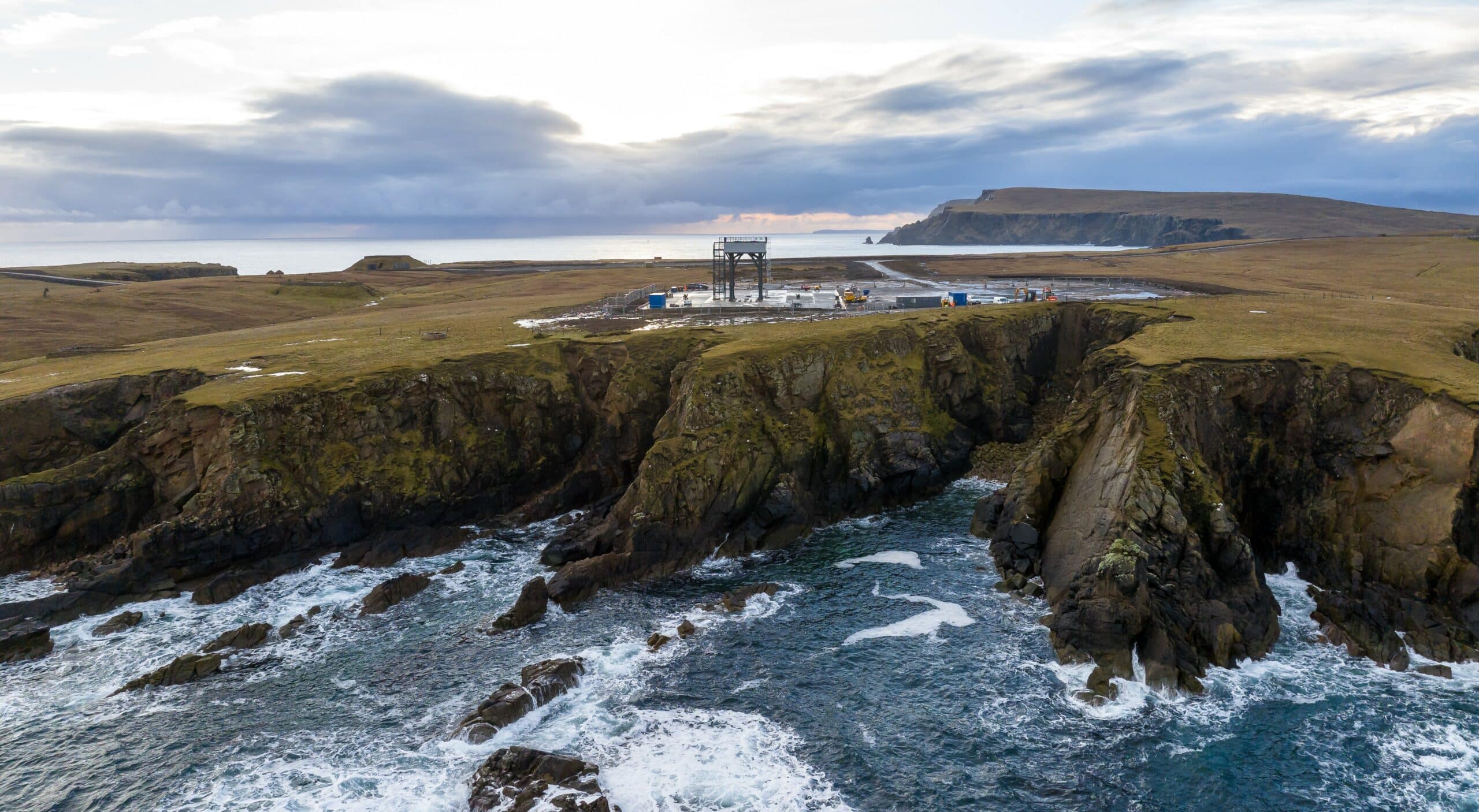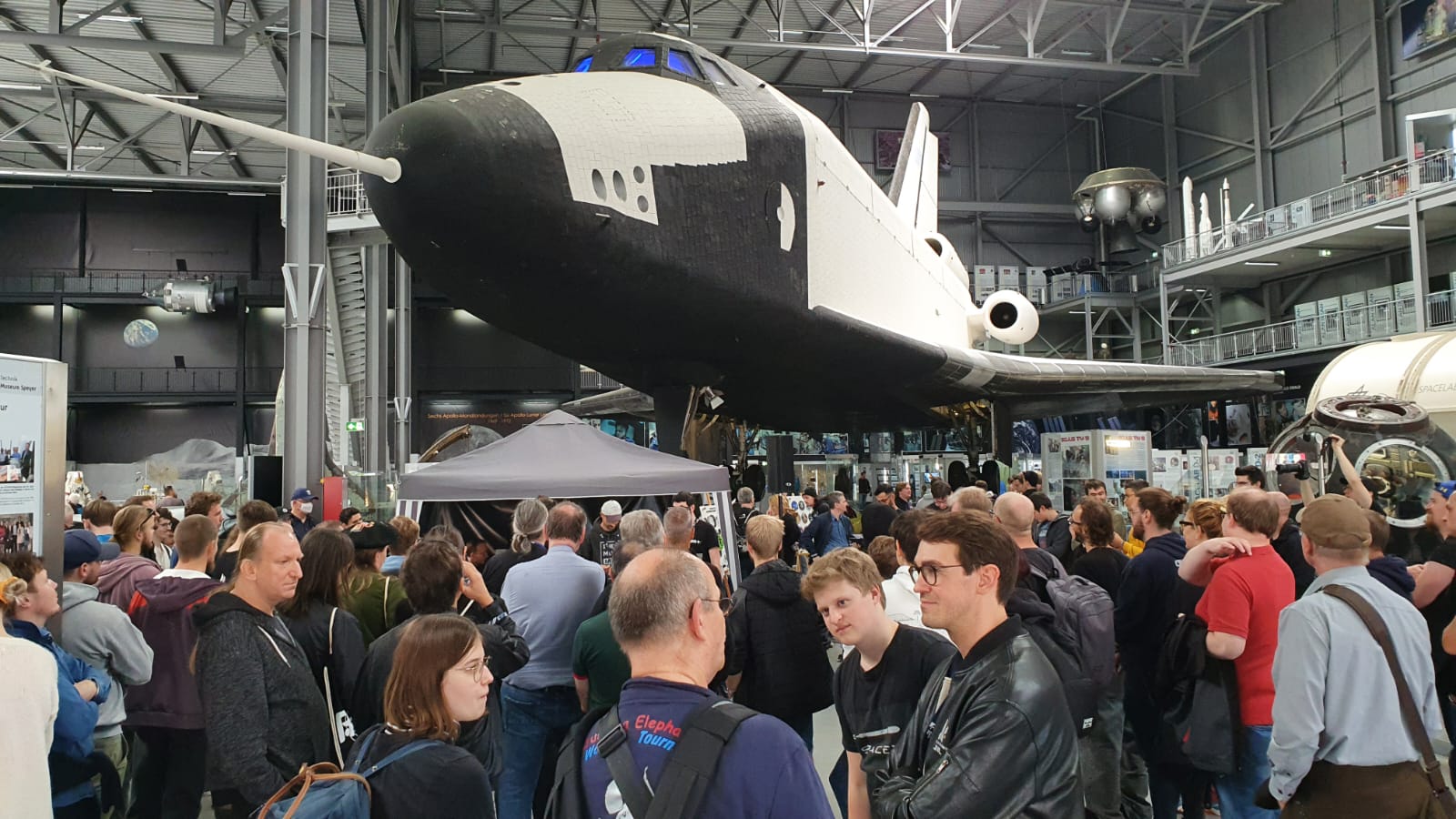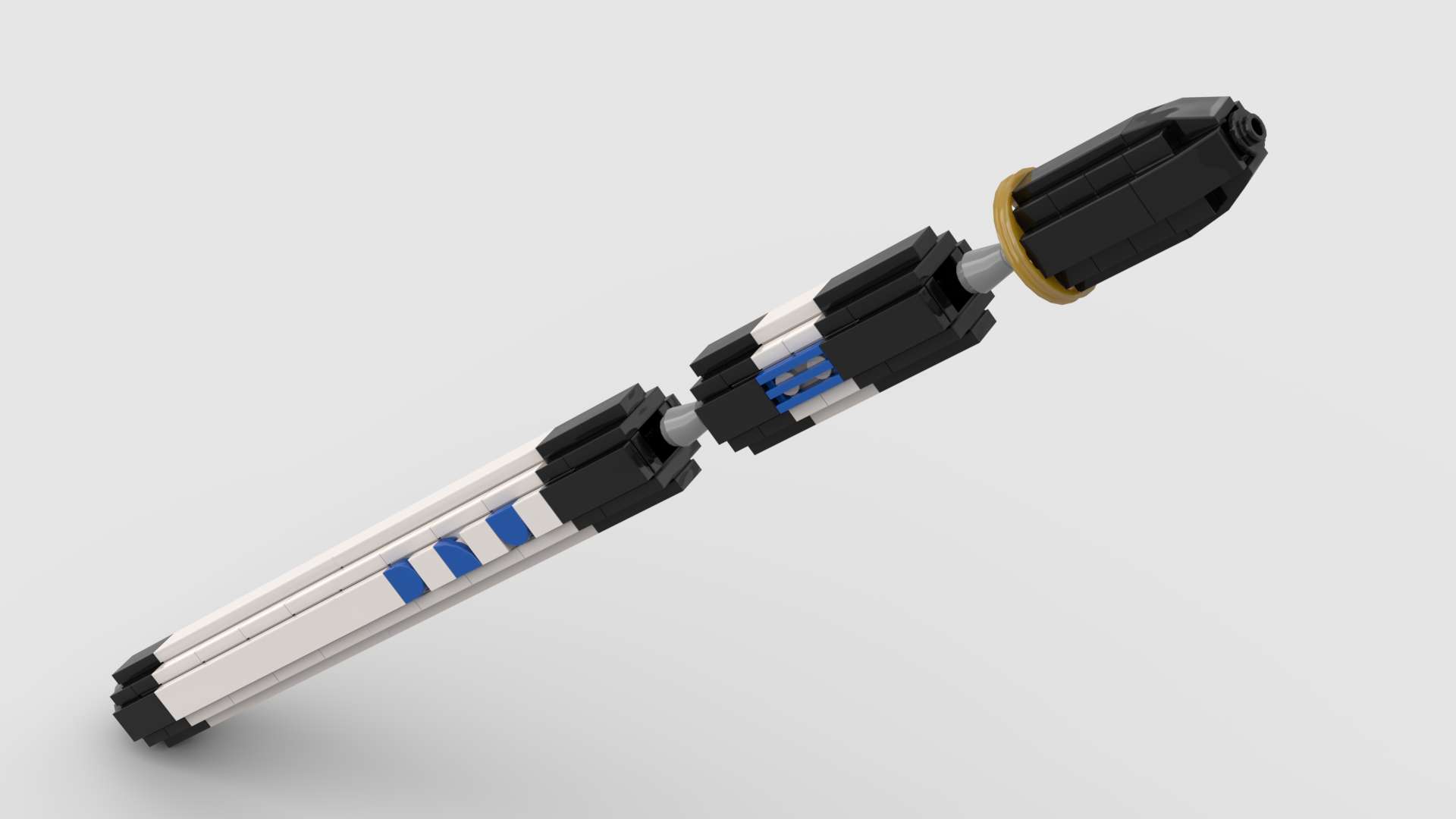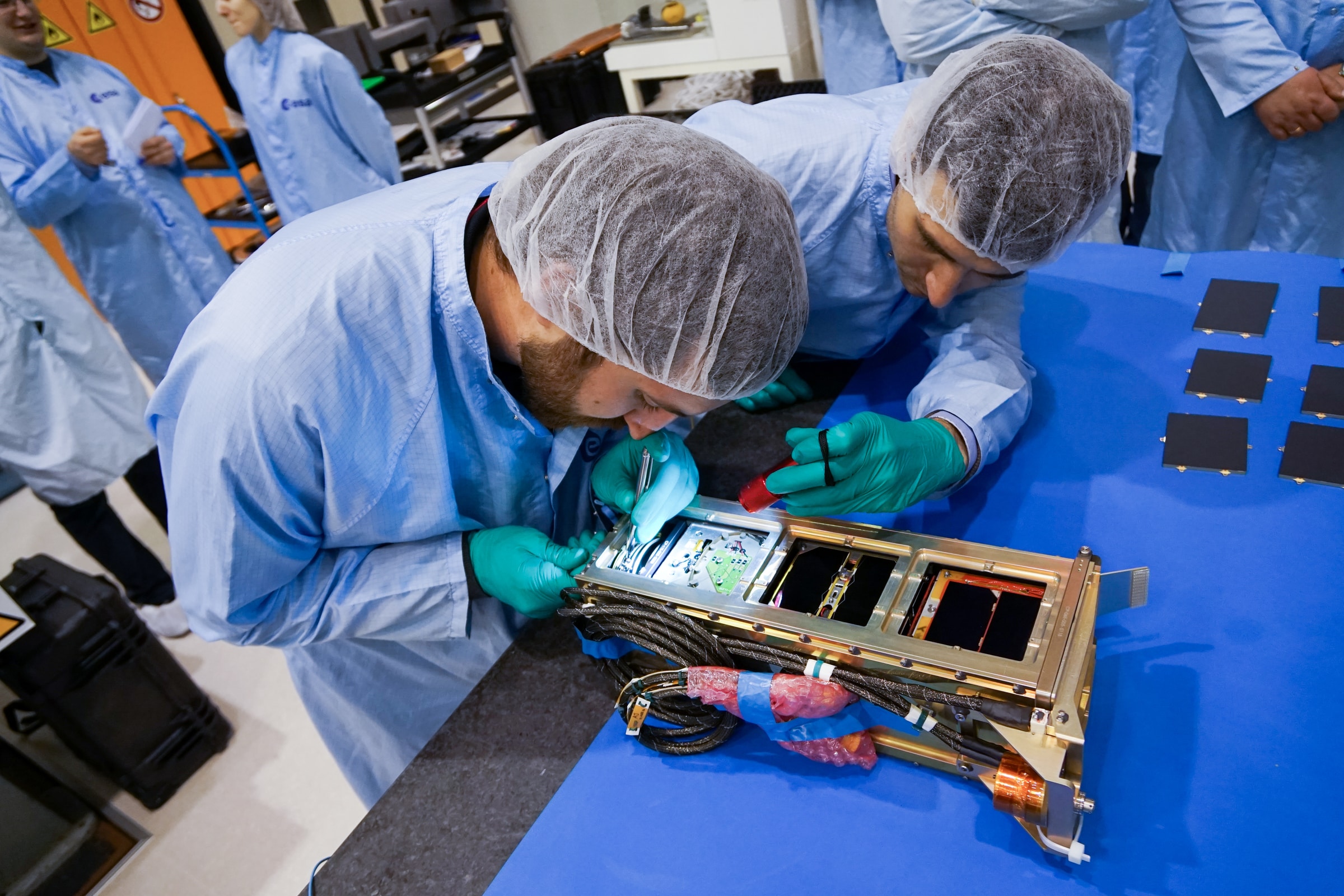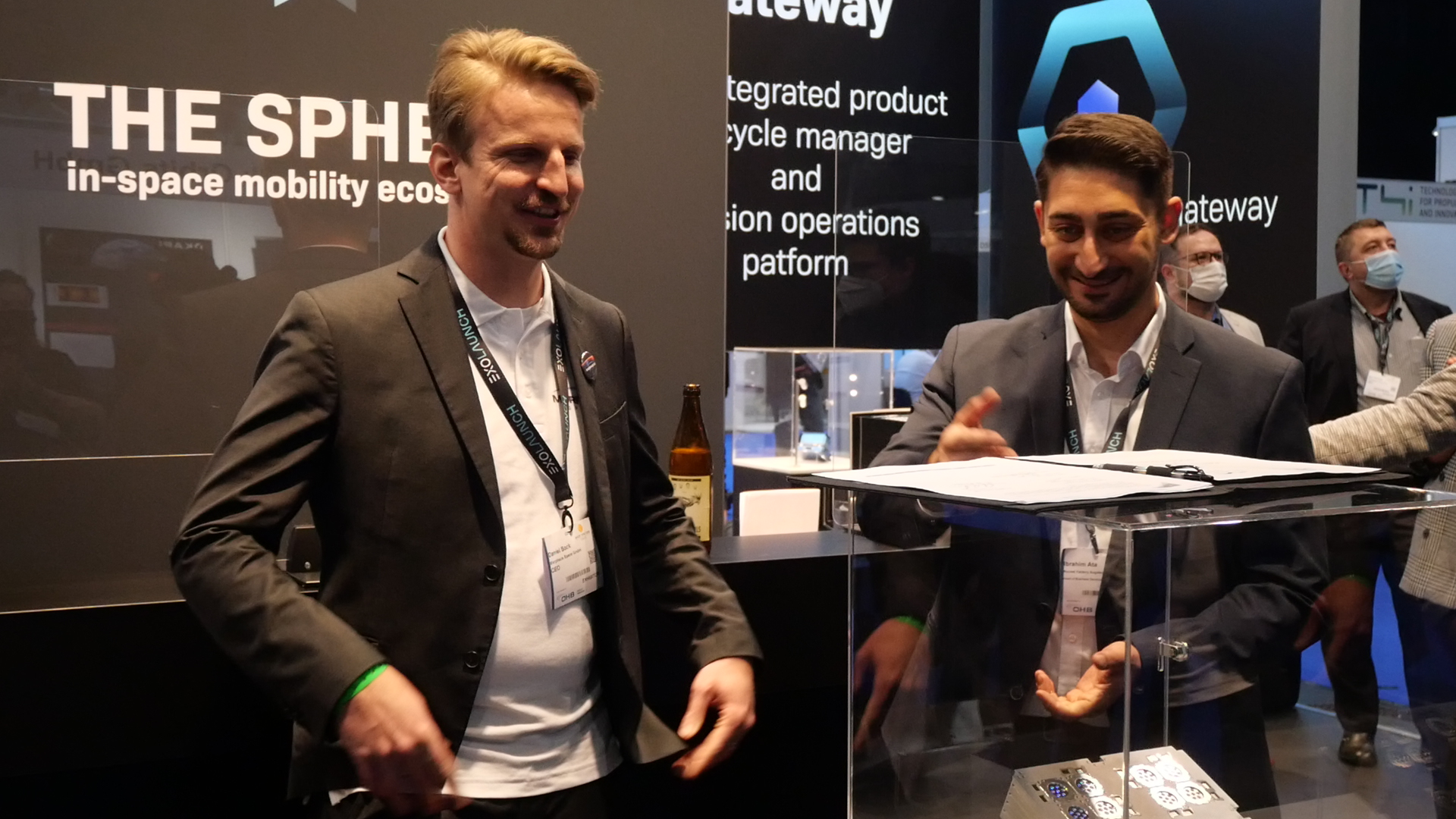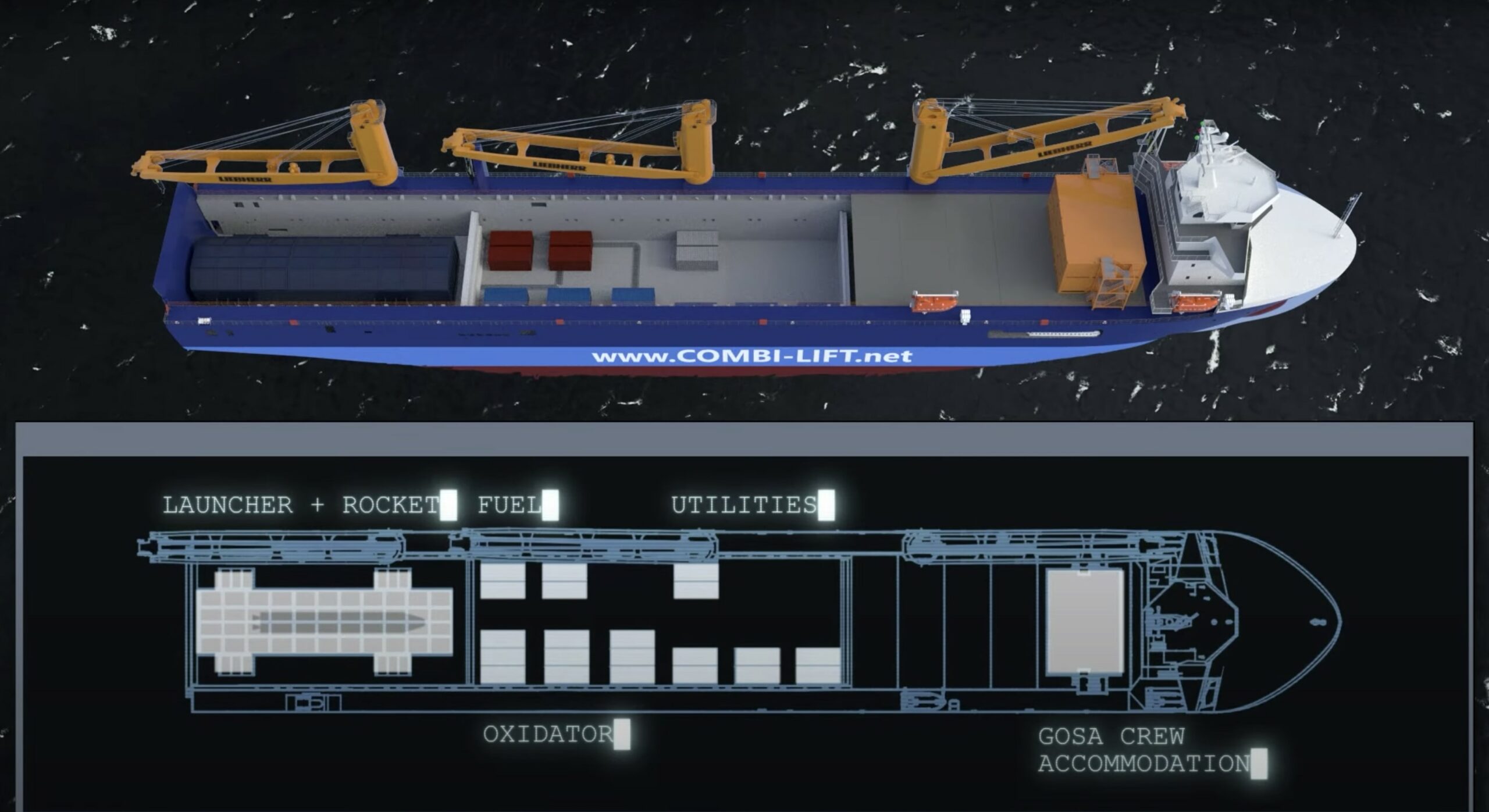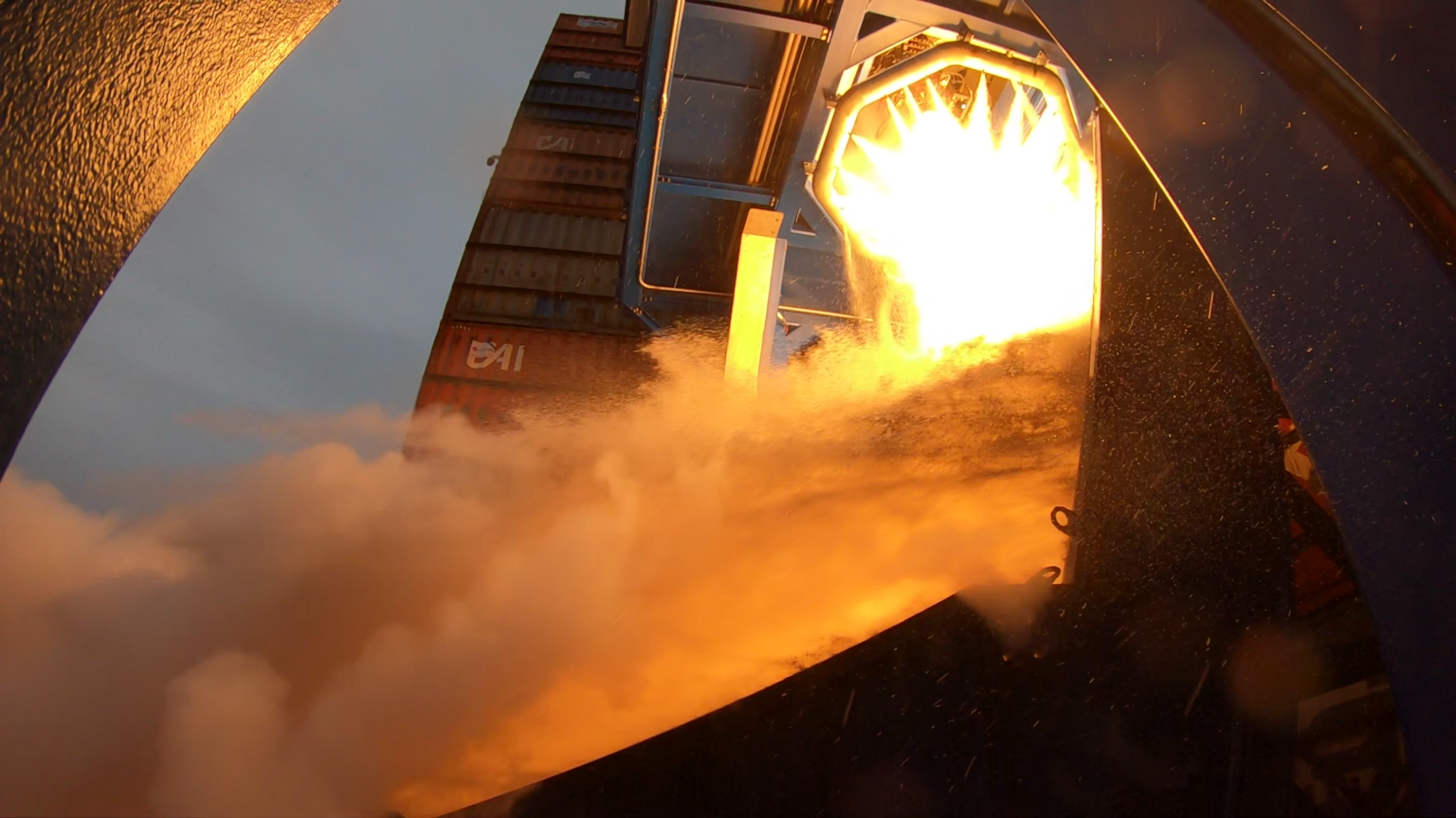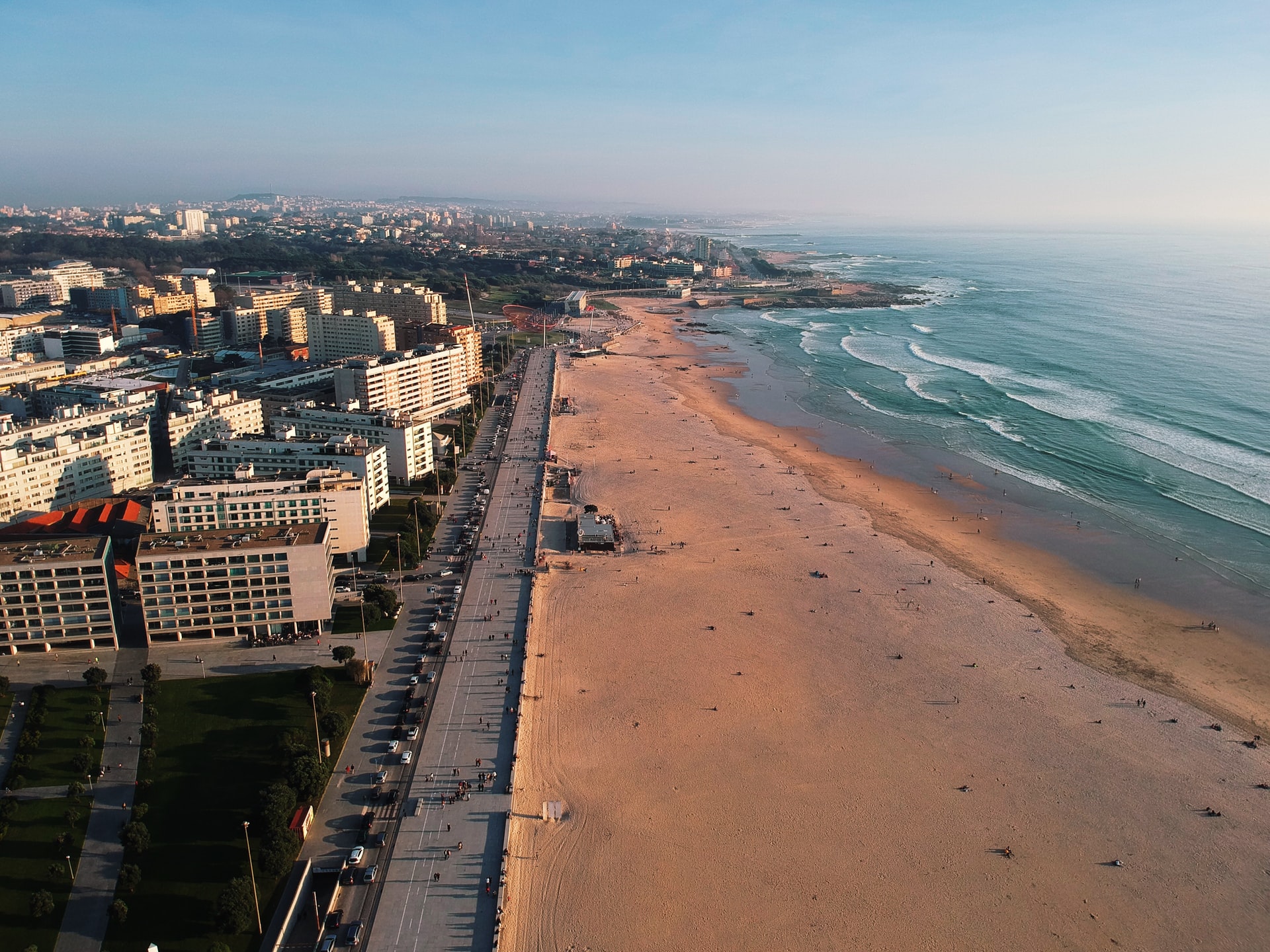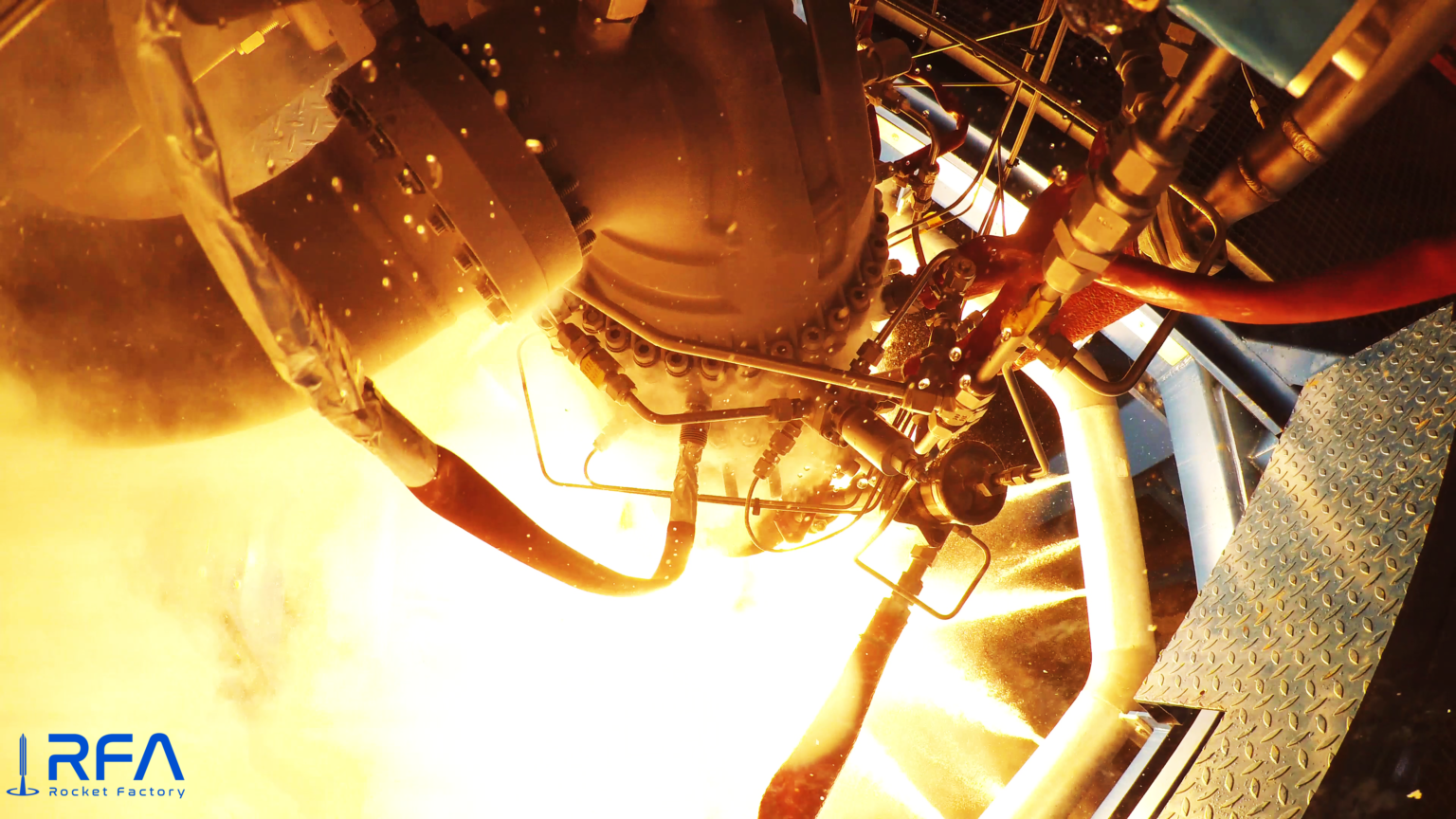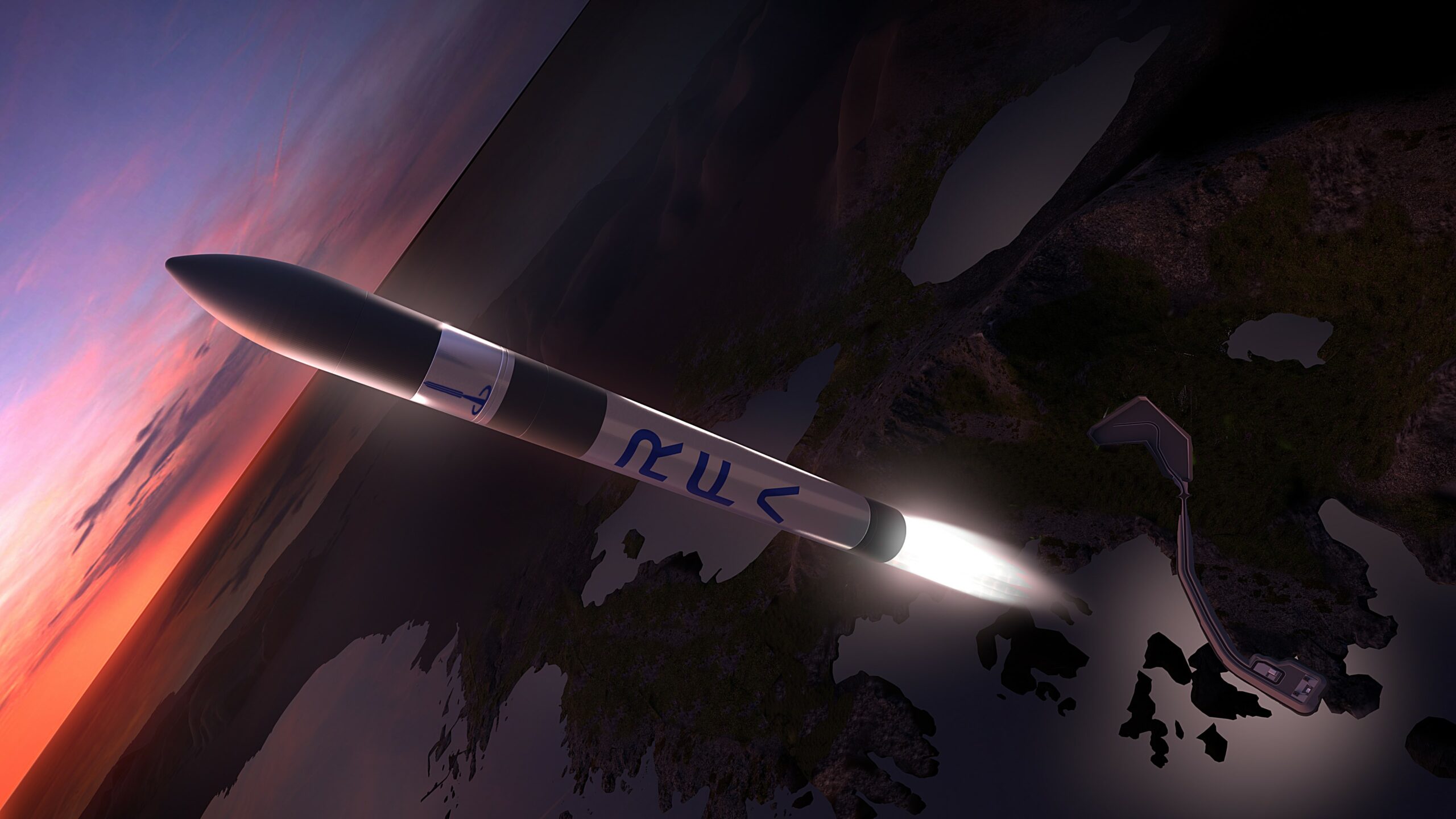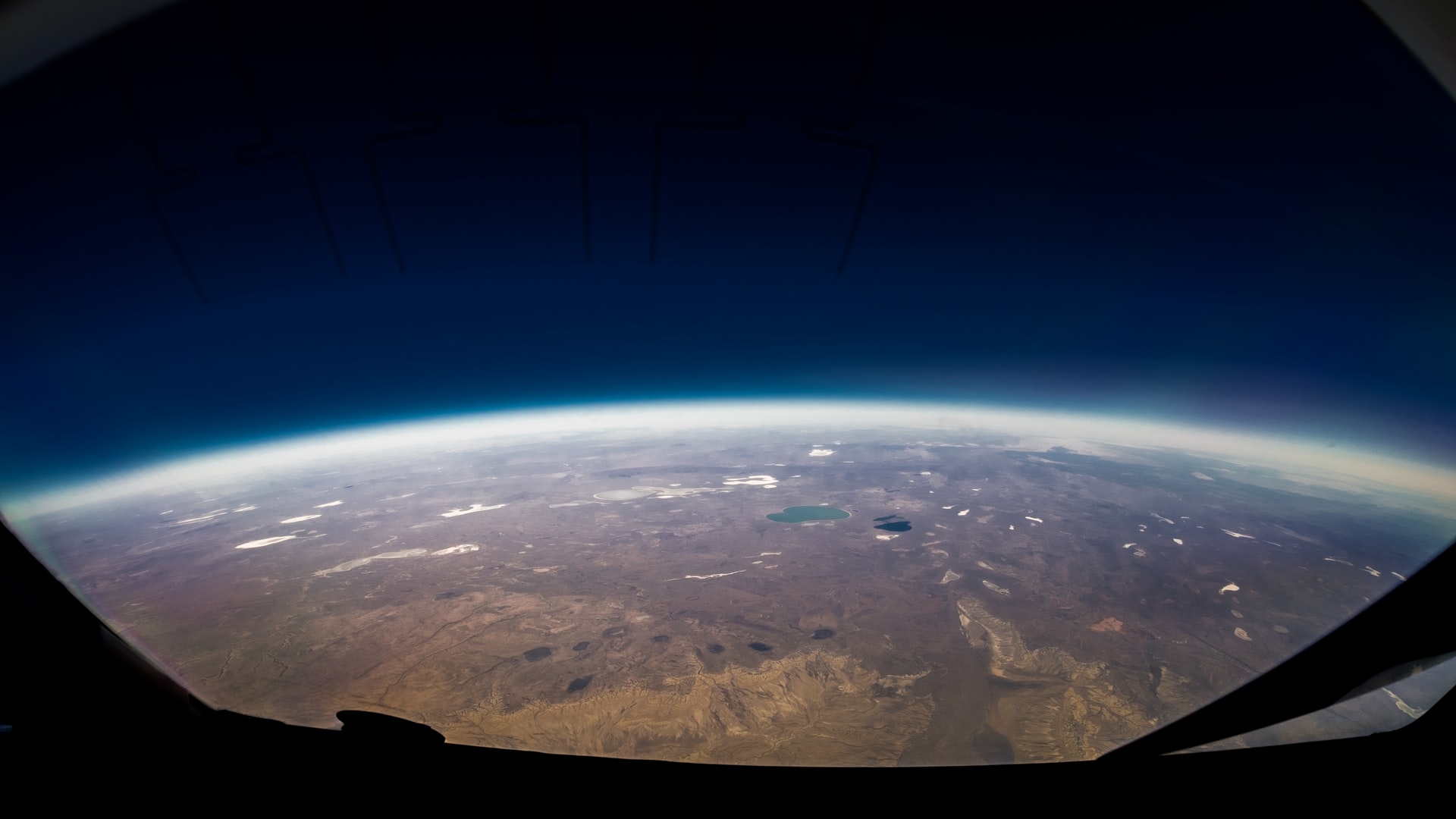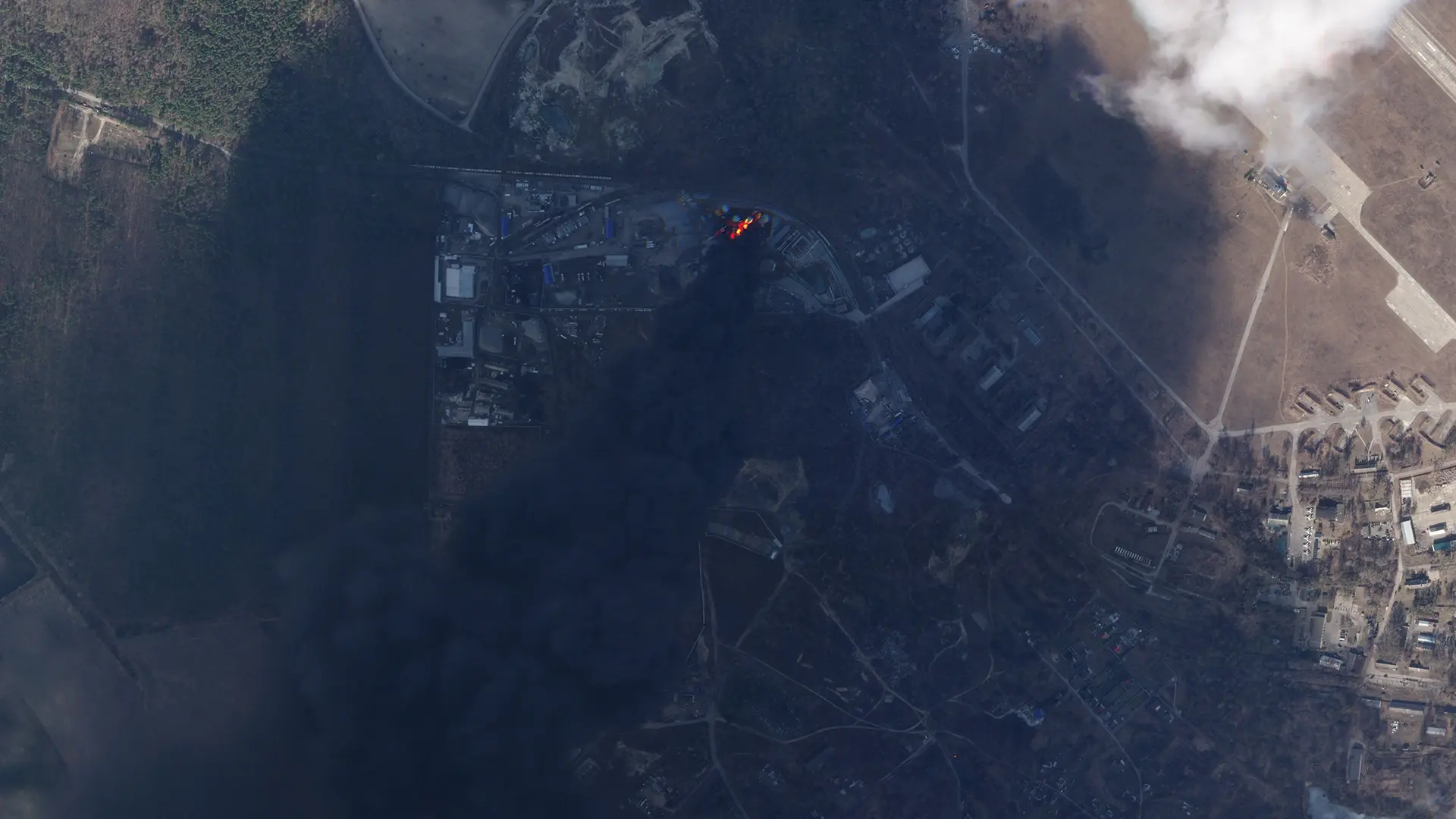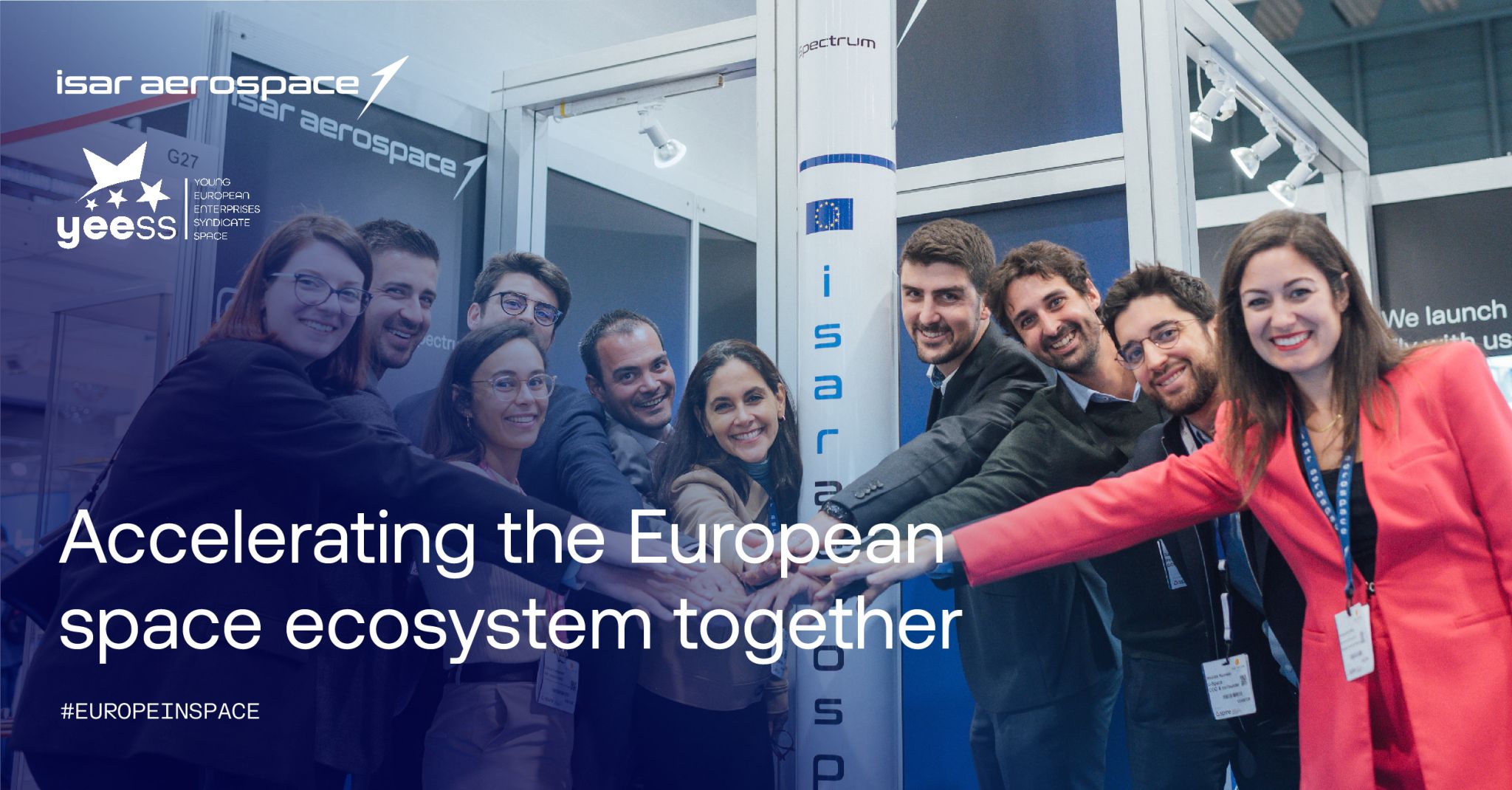
IAC 2022 - Conclusion
Published on Sun, 25.09.2022 – 11:26 CEST in Events, covering IAC 2022RFA signs Boost! contract with ESA
Spaceflight Inc. to launch with RFA ONE from 2024
RFA to launch two SSA satellites from Digantara into space
DcubeD and German Orbital Systems GmbH start development of deployable radiator for SmallSats
DcubeD and memetis receive ZIM funding from BMWK for pico actuator development PAKKS
Berlin Space Technologies (BST) unveils satellite platform for mega constellations
Exolaunch becomes a member of the YEESS syndicate
From September 18 - 22, 2022, the 73rd International Astronautical Congress (IAC) was held in Paris. This year's edition was entitled Space for @ll! In this summary we report on the most important news related to the German and European NewSpace.
Rocket Factory Augsburg and ESA sign Boost! contract
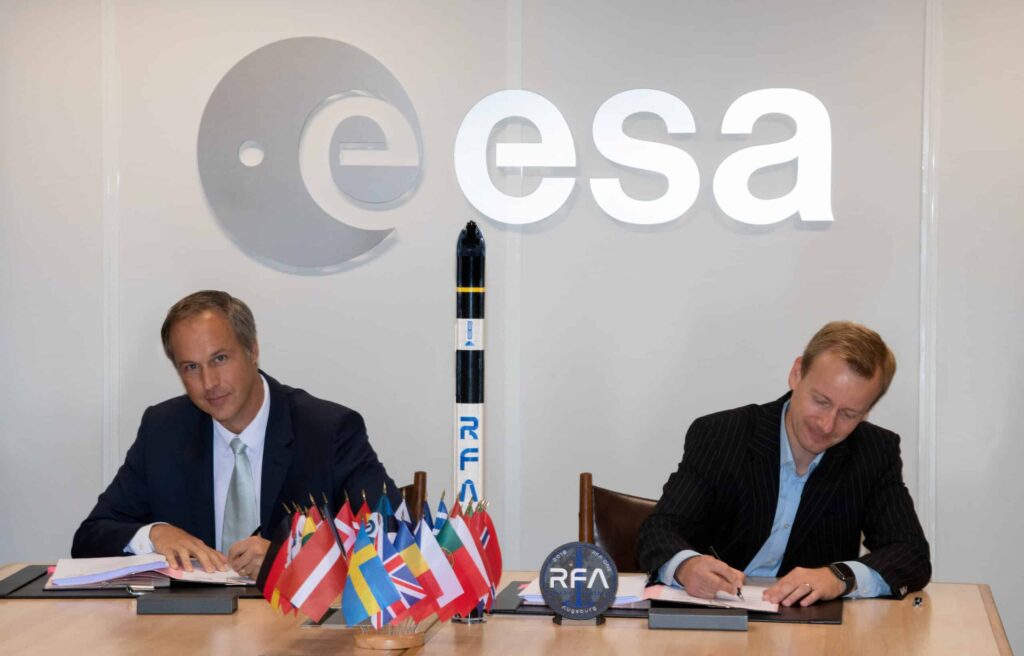
© Rocket Factory Augsburg
In April 2022, Rocket Factory Augsburg won a microlauncher competition as part of a call for entries from the German Aerospace Center (DLR). As the winner of the 2022 round, the Augsburg-based company can thus look forward to receiving € 11 million. The corresponding contract of the ESA Boost! program has now been signed at the IAC in Paris. According to the agreement, both the German government and ESA will act as anchor customers. The first two launches of the RFA ONE launcher will carry payloads of up to 150 kg each into orbit. DLR has already launched a corresponding invitation to tender for institutions and companies.
Although the signing marks the official start of the collaboration. However, the formalities were completed just eight weeks after the invitation to tender. Accordingly, Jörn Spurmann, Chief Commercial Officer at RFA, is also satisfied: "It is very exciting to witness the commercialization of European space transportation and to drive it forward together with ESA. We are proud to have the support of the German government and ESA. The speed with which we successfully moved through the process demonstrates the success of the Boost! program at ESA." This is also underlined by Daniel Neuenschwander, Director of Space Transportation at ESA: "Europe has the advanced technologies and entrepreneurial spirit to transform the market for small satellite launch services. Now is the time to move quickly and demonstrate progress."
Rocket Factory Augsburg and Spaceflight sign memorandum of understanding for launches starting 2024
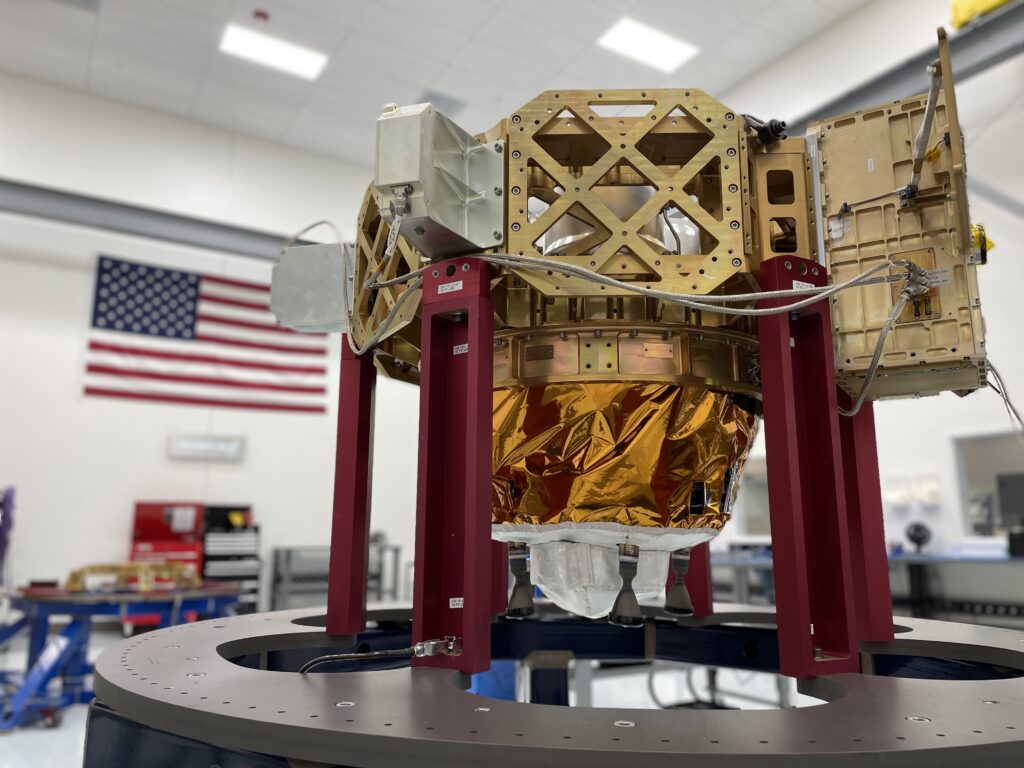
Spaceflight Inc. announced that the U.S. launch services provider will also collaborate with Rocket Factory Augsburg in the future. A Memorandum of Understanding was signed at IAC 2022 in Paris. According to the agreement, Sherpa® Orbital Transfer Vehicles (OTVs) as well as other rideshare payloads will be launched on upcoming RFA missions. Various European launch sites will be used for this purpose, including facilities in the United Kingdom and French Guiana. The first launch is targeted for mid-2024. As Curt Blake, CEO and president of Spaceflight Inc. explains, demand for low-cost launches is growing rapidly. Customers are particularly interested in a variety of launch options at different prices and orbital destinations, he said. But locations are also critical, Blake says: "RFA brings increased price competitiveness and launch frequency from many different launch locations throughout Europe. We’re looking forward to extending our launch vehicle portfolio for Sherpa OTVs and rideshare services to now include RFA ONE."
Joern Spurmann, chief commercial officer at RFA, emphasizes the expertise of Spaceflight Inc, which has set standards since its founding in 2011. "Spaceflight pioneered and truly defined the rideshare market and we’re very excited to partner with them on future launches." The industry should thus benefit from more launch flexibility and options for competitive launches to low Earth orbit (LEO) and beyond. The Sherpa family of spacecraft are modular and flexible transportation vehicles that are used in the so-called "last mile." They bridge the gap between the release point of a launch vehicle and the final destination orbit of a satellite. In this context, satellites can be placed in orbits in LEO as well as in translunar and low-lunar orbits or in geosynchronous equatorial orbits (GEO).
Digantara and Rocket Factory Augsburg sign letter of intent to launch two SSA satellites
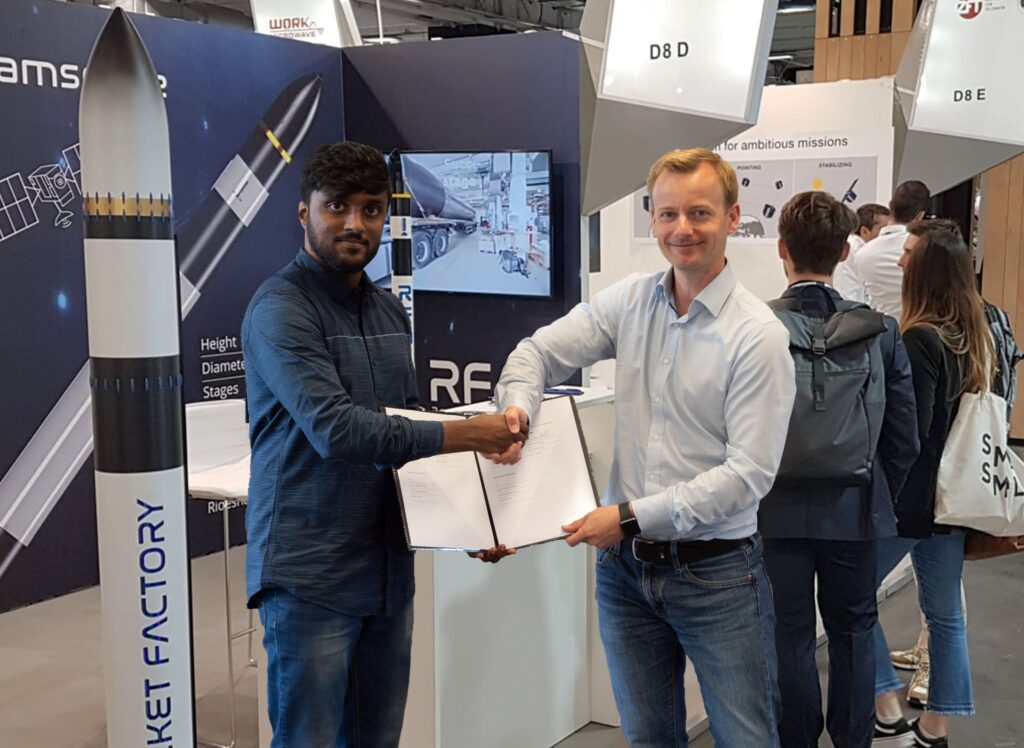
© Rocket Factory Augsburg
The Indian company Digantara (Research and Technologies Private Ltd) has set itself the goal of establishing its own satellite constellation for monitoring the Space Situational Awareness (SSA). To this end, a total of 40 satellites are to be launched into space, which will be used to track space debris in the field. Two crucial satellites in the Digantara constellation are scheduled to launch with RFA ONE in late 2024. An associated Memorandum of Understanding was signed at IAC 2022 in Paris by Rahul Rawat (Chief Operating Officer, Digantara) and Joern Spurmann (Chief Commercial Officer, RFA).
Under this agreement, Digantara and RFA will work together in a strategic partnership. The goal is to integrate the Space-MAP (Space - Mission Assurance Platform) platform into the RFA ecosystem. As Joern Spurmann points out, small to medium satellites are the driving force of the NewSpace industry. In addition, he says, RFA is proud "that another international customer has chosen our highly competitive launch service." According to Rawat, Rocket Factory Augsburg enables the company to overcome two significant bottlenecks: the ability to precisely place satellites into orbit and the ability to launch satellites on demand.
DcubeD and German Orbital Systems GmbH develop deployable heat sink for SmallSats
The two German NewSpace companies announced in Paris that they will start developing a deployable radiator. This is to be used for small and cubesats, whose small size requires new approaches to thermal management. FENNEC (FoldablE Newspace Next gEneration radiator for Cubesats) is currently still in an early phase of product development. The modular system is designed to enable controlled heat transfer from the source to the cooling surfaces used. Multiple FENNEC panels can be combined to increase overall heat dissipation. This would solve the problem that small satellites, by definition, have an insufficiently large external surface area for cooling. However, since SmallSats require high heat dissipation, it is critical that sufficient radiating surfaces are available to lower the overall system temperature.
The project is supported by the European Space Agency (ESA) under its ARTES Core Competitiveness Program in the ESA Telecommunications and Integrated Applications Directorate (ESA-TIA) and by the German Aerospace Center (DLR) with funds from the German ESA budget.
The fact that the urgently needed thermal solution for SmallSats is being promoted in this way pleases Dr. Thomas Sinn, CEO of DcubeD: "Our development partners at German Orbital Systems and at ESA are working closely to bring a SmallSat radiator product to market quickly. The deployable radiator FENNEC fits perfectly in the DCUBED product portfolio of release actuators and SmallSat deployables; it’s a perfect add-on to our 100W 1U solar array PowerCube." Dmitriy Sternharz, Managing Director of German Orbital Systems GmbH, is also looking forward to the collaboration, "It is great to get support from ESA and DLR to build new products and develop new technologies for CubeSats. Together with DcubeD we have a longstanding and productive history of collaboration, and at GOS we are excited for this opportunity to bring a new product to the market together."
DcubeD and memetis receive ZIM funding for pico actuator development PAKKS
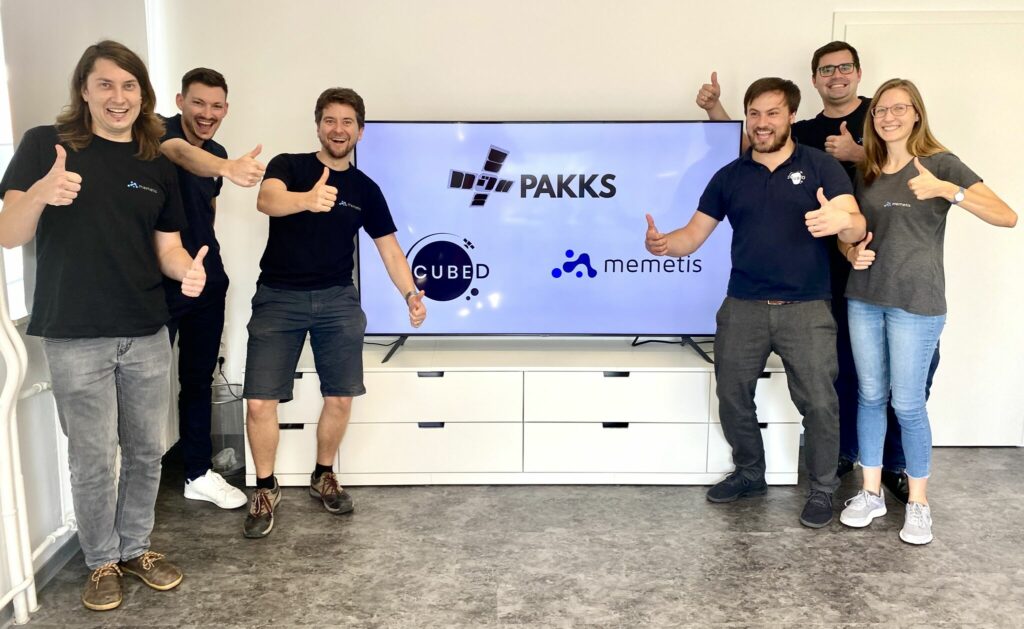
Under the project name PAKKS, the two companies plan to develop a resettable and testable release actuator for use in CubeSats (10 x 10 x 10 cm edge length) and the even smaller PocketQubes (5 x 5 x 5 cm edge length). Actuators are release devices that allow large structures that have been folded and stowed on Earth to be unfolded in space. These are, for example, antennas, solar panels or heat sinks. Due to their small size, however, the actuators may only be a few millimeters in size, and they must also function reliably in space. The actuator now planned by DcubeD and memetis can be integrated between standard CubeSat boards. It is to operate on the basis of a shape memory alloy (SMA) with the on-board power supply of the satellites and be able to provide feedback on the mission status.
The project is funded by the Central Innovation Program for SMEs (ZIM) of the German Federal Ministry of Economics and Climate Protection. ZIM is the largest innovation program for SMEs in Germany and supports innovative companies with business operations in Germany that want to develop new products or technical services or significantly improve existing ones. The PAKKS project started back in July and will run for 18 months, including a test campaign.
Berlin Space Technologies (BST) unveils satellite platform for mega constellations
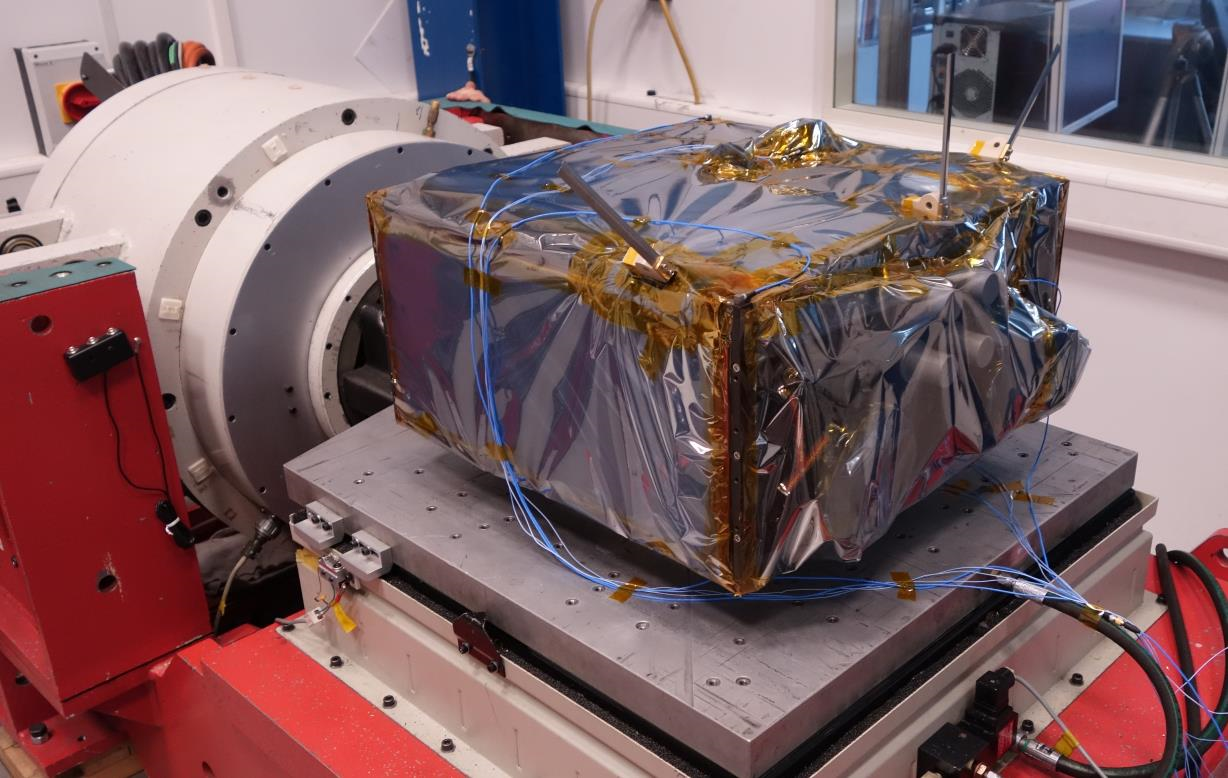
Berlin-based space technology company Berlin Space Technologies GmbH (BST) has unveiled its expanded LEOS-100 platform at IAC 2022. The extension of the product portfolio is intended to enable sophisticated missions involving satellites with a mass of 200 - 500 kg. The new class of LEOS-100 has already been in development since 2019. The ambition was to achieve production times of less than one week per unit in series production. In terms of reliability and performance, the LEOS-100 satellites build on the flight-proven system of the LEOS-50. The first LEOS-100 system is to be delivered to a customer as early as January 2023, with series production then starting in a new factory in Berlin at the end of June 2023.
"With LEOS-100 we are extending the range of our flight proven satellite platforms," said Tom Segert, CEO of BST. "Development has been internally funded to suit a class of missions for which we see an increased demand." Matthias Buhl, CTO of BST, adds, "The development for the extended LEOS-100 started with requests from our partners and followed two main questions: how can we re-use most of the avionics of our flight proven LEOS-50 platform, and how can we facilitate a build time of 1 week or less for one satellite in our factory?" BST's COO, Björn Danziger, emphasizes that reuse and optimization offer numerous benefits. This is because instead of having to reinvent the wheel, faster mission implementation is made possible, which also translates into lower costs. By its own account, BST has sold more satellites (50+ kg) designed and built in Germany to commercial customers than any other supplier over the past 10 years.
Exolaunch is member of YEESS
In September 2021, NewSpace startups founded YEESS (Young European Entreprises Syndicate Space). The initiative is a registered association recognized in Belgium and open to all young space companies. To be eligible for membership, they must have been founded more than two years but less than 10 years ago at the time of joining. In addition, they must have their headquarters in a European Union country or an ESA member state. As part of IAC 2022, it has now been announced that three more members have joined. Alongside the French nano-satellite manufacturers U-Space and the geolocation company Unseenlabs, also from France, Exolaunch.
"For Exolaunch, the opportunity to exchange with valued peers in the sector and be able to influence the direction of commercial contracts for the benefit of the European New Space posture is huge. It’s critical to foster cooperation within Europe’s expanding ecosystem of innovative NewSpace companies. Through YEESS we hope to have an efficient multilateral dialogue, to voice our position, and be heard," Jeanne Allerie, VP Launch at Exolaunch outlines her expectations for membership.
